31 Concepts that changes how you see the world
I've participated in Inktober for the past few years; It's an art initiative that challenges us all to practice drawing and create something related to a different prompt everyday for the month of October. Instead of drawing art pieces as usual, I decided to research and visualise a different concept based on the prompts. It sure was a month of challenges.
It's too easy to get caught up in our daily lives and immediate objectives, and forget about the wonderful universe we live in. By learning about disparate concepts in the world, one can build an intuition and deeper understanding of the interconnectivity of everything; and hopefully use that more-informed view to make a positive difference.
Day 1: Fish - Global fish production over time
Our demand for seafood steadily rises, however, aquaculture production recently surpassed wild catch which plays an important role in protecting wild fish populations.
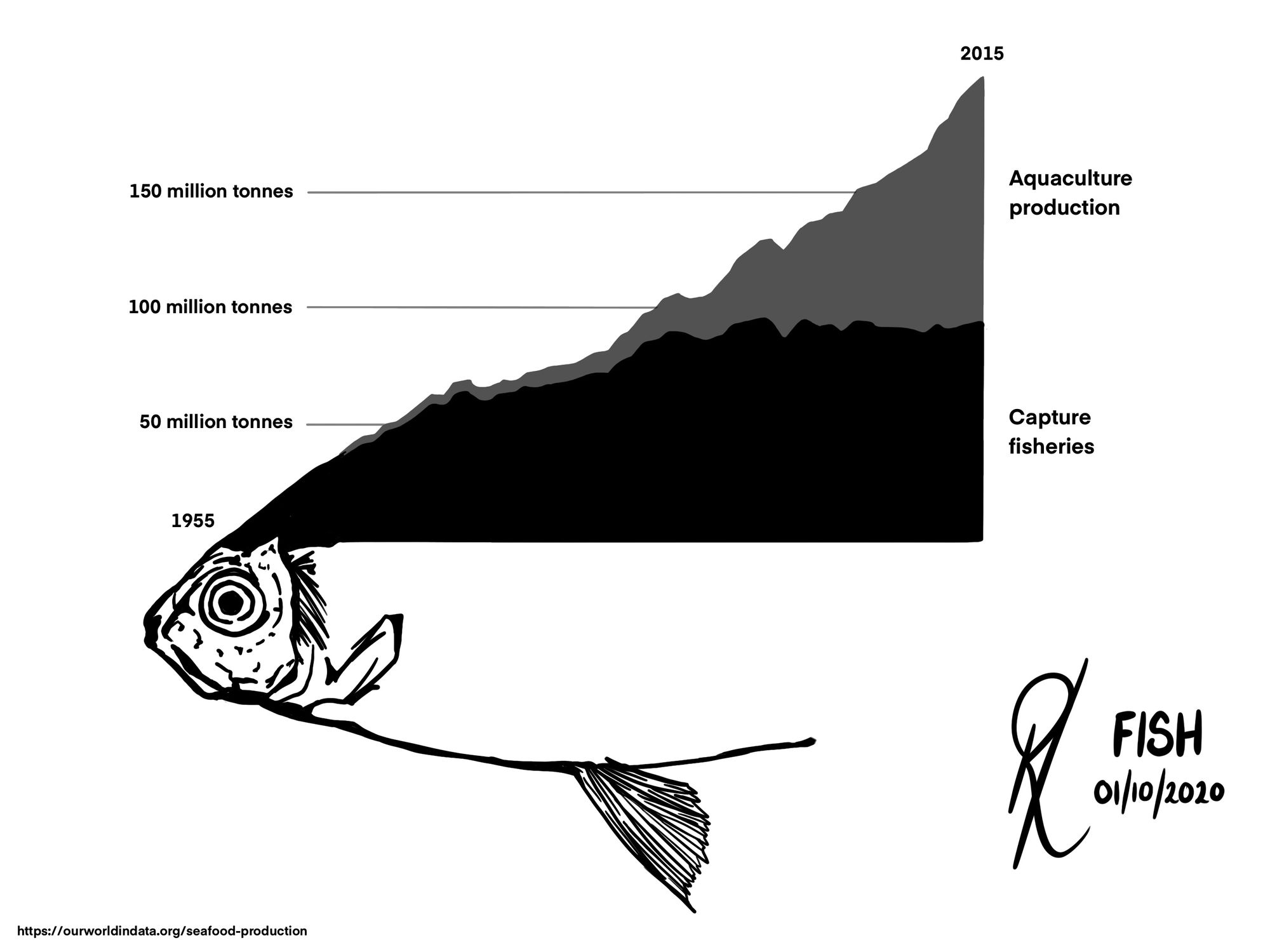
Day 2: Wisp - Our carbon dioxide footprint over time
Human emissions of greenhouse gases is the primary influencer in climate change. These gases absorb and reflect heat that could be bounced into space. There's also a lag - Earths temperature will still rise decades after we've stabilised the atmosphere.
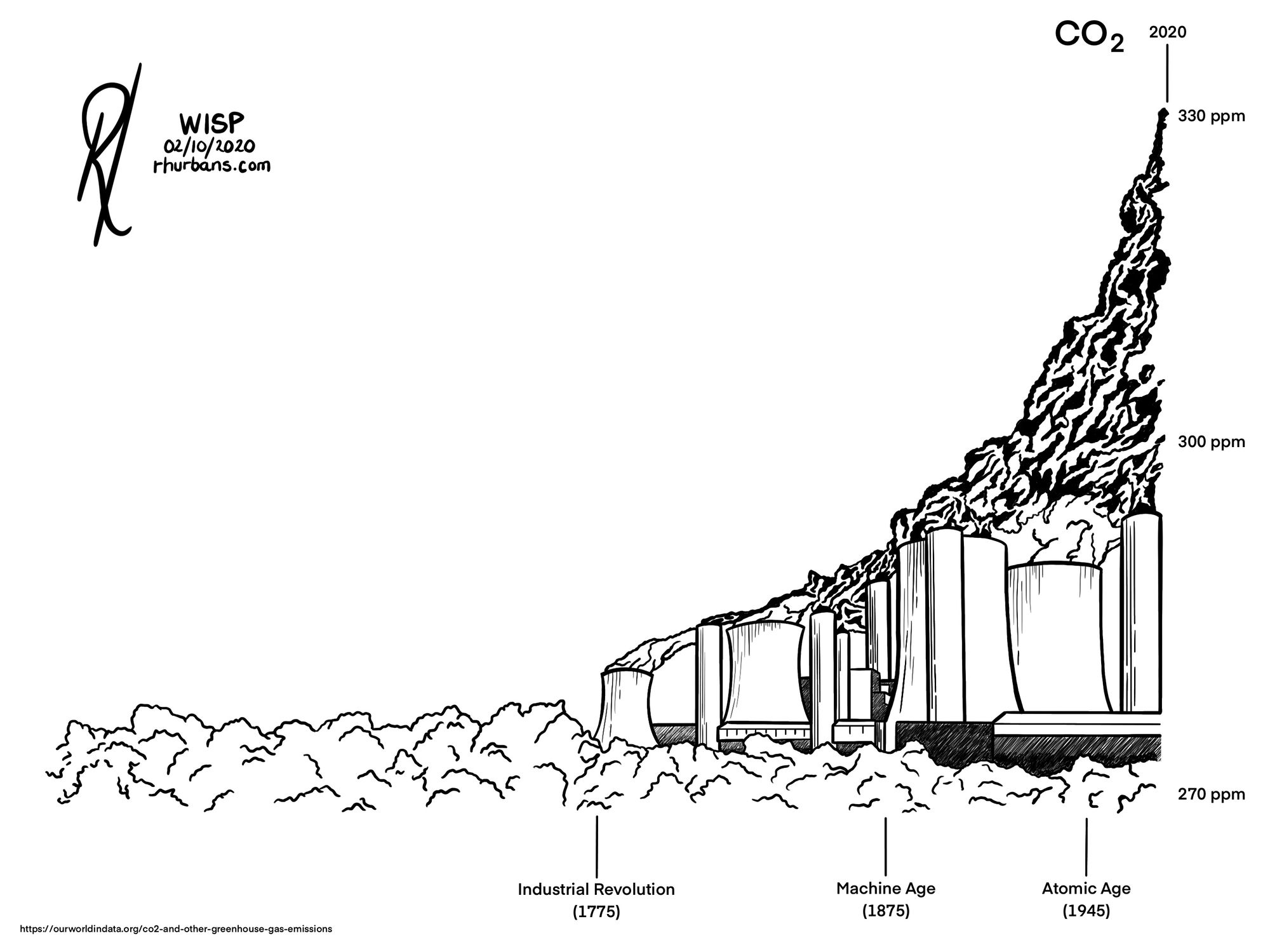
Day 3: Bulky - Pangea, the past and future
Do you know about Pangea? It's a theoretical supercontinent that existed ±300 million years ago. As part of the supercontinent cycle, it's predicted that Pangea Proxima, another supercontinent, will form in the next 300 million years.
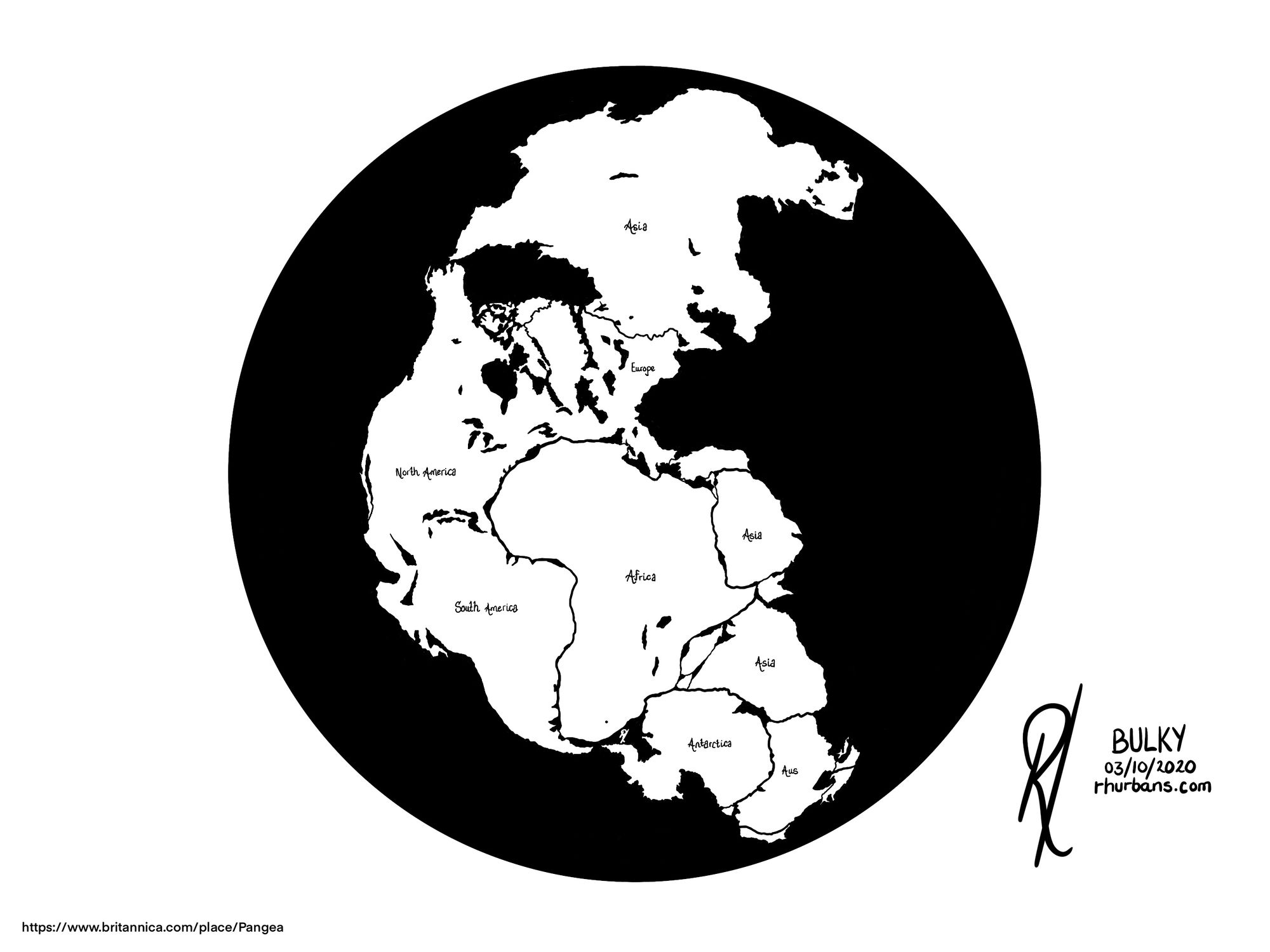
Day 4: Radio - Electromagnetic wave frequencies
Electromagnetic radiation is everywhere. Different radiation has different wavelengths and energy levels - only a tiny portion is visible to us. These waves radiate well in a vacuum, unlike sound waves that require a medium like air or water to travel.
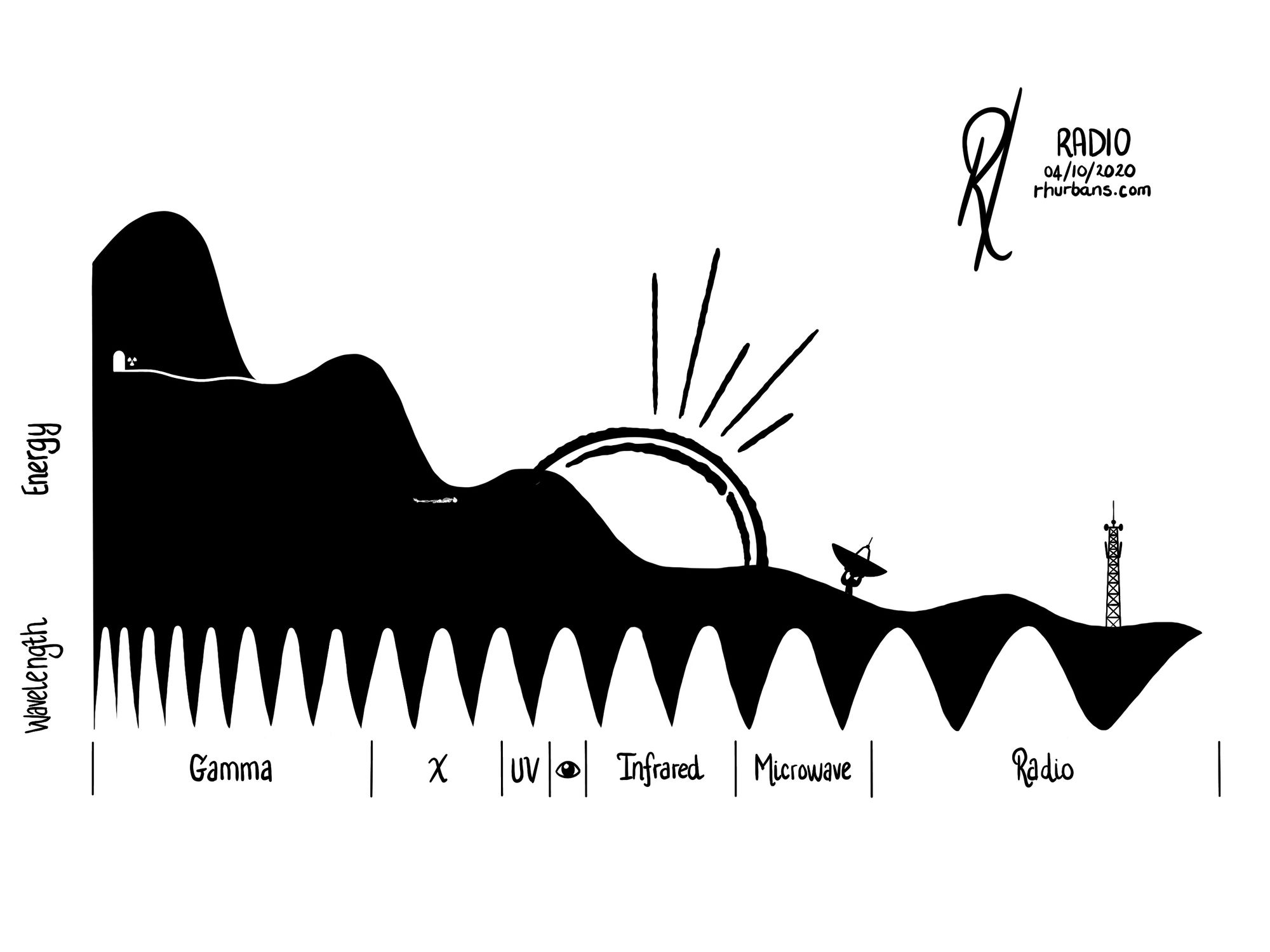
Day 5: Blade - The uptake of wind energy
Wind turbines at scale is a relatively new way to produce energy, and it's one element to a sustainable future. It's estimated that 1 megawatt of wind energy equates to 2,600 fewer tons of carbon emissions, compared to coal fired energy generation.
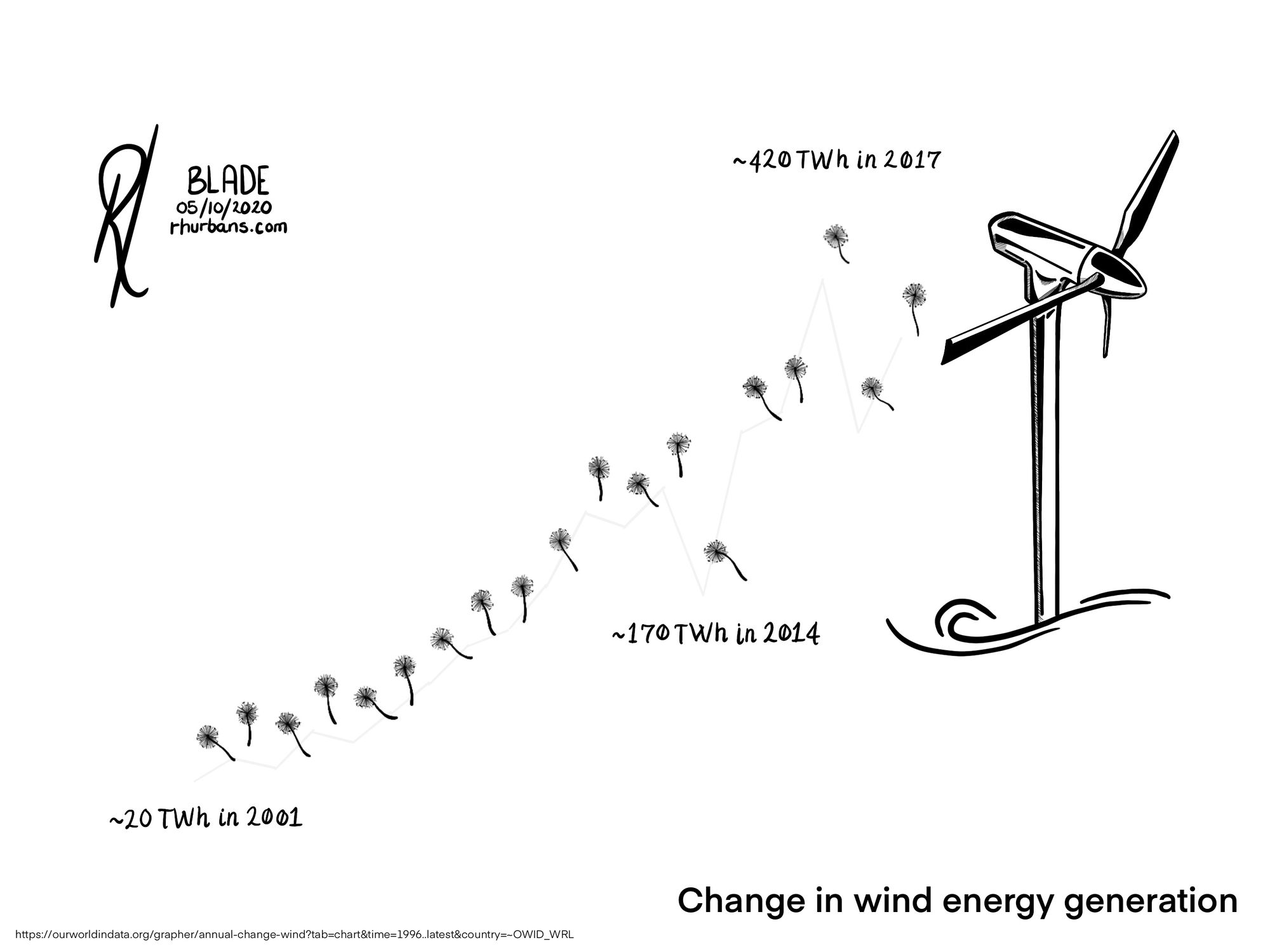
Day 6: Rodent - The human genome vs. the mouse genome
Mice and humans are both mammals that have similar sets of genes - although we're still studying many of them. This, along with their low cost, size, and maintenance, make mice good test subjects for medical innovations.
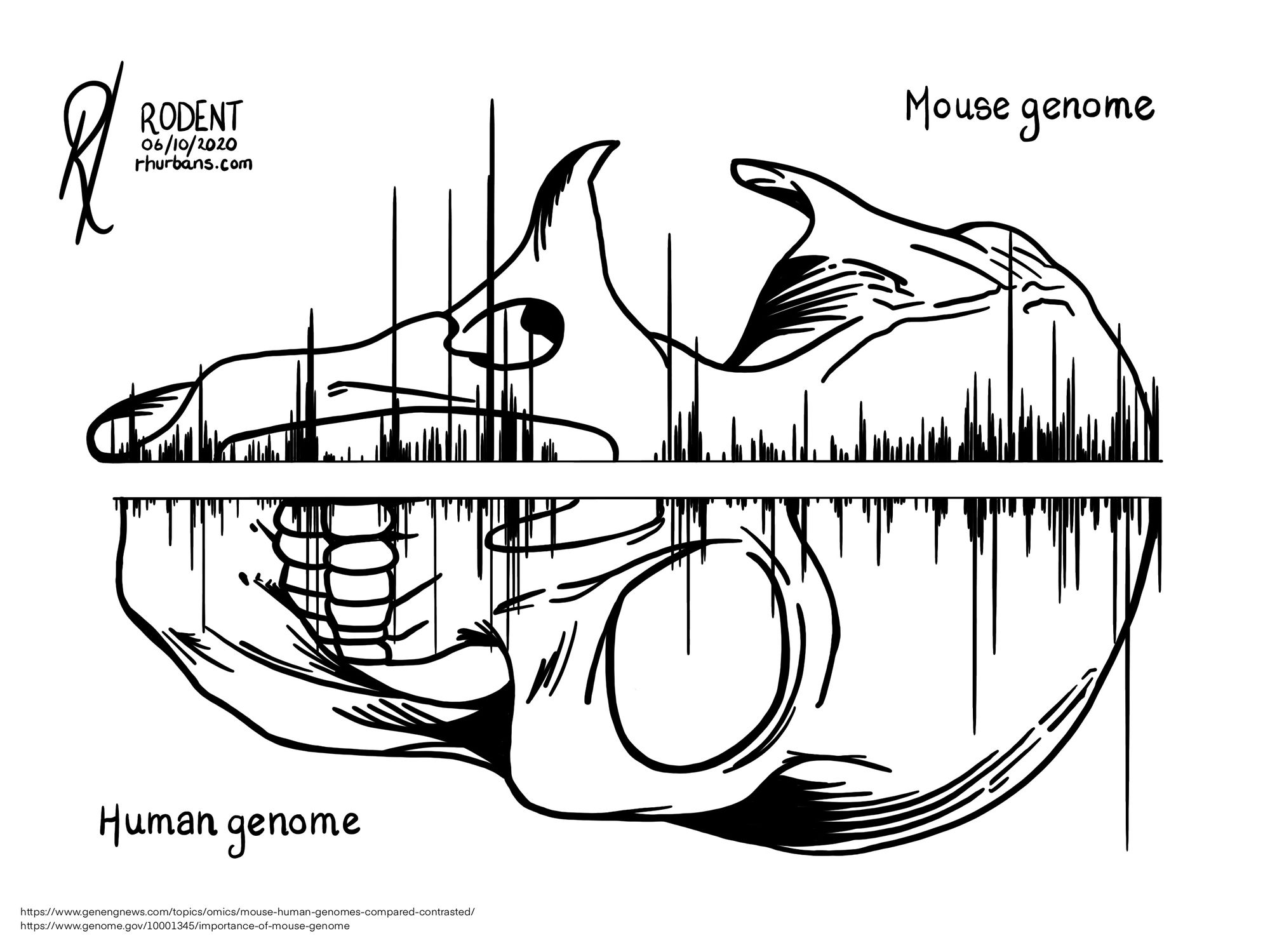
Day 7: Fancy - The Michelin star rating system
You may have heard of Michelin star restaurants. 3-star restaurants are esteemed and worth planning a special journey for. And yes, it's the same Michelin as the tyre company!
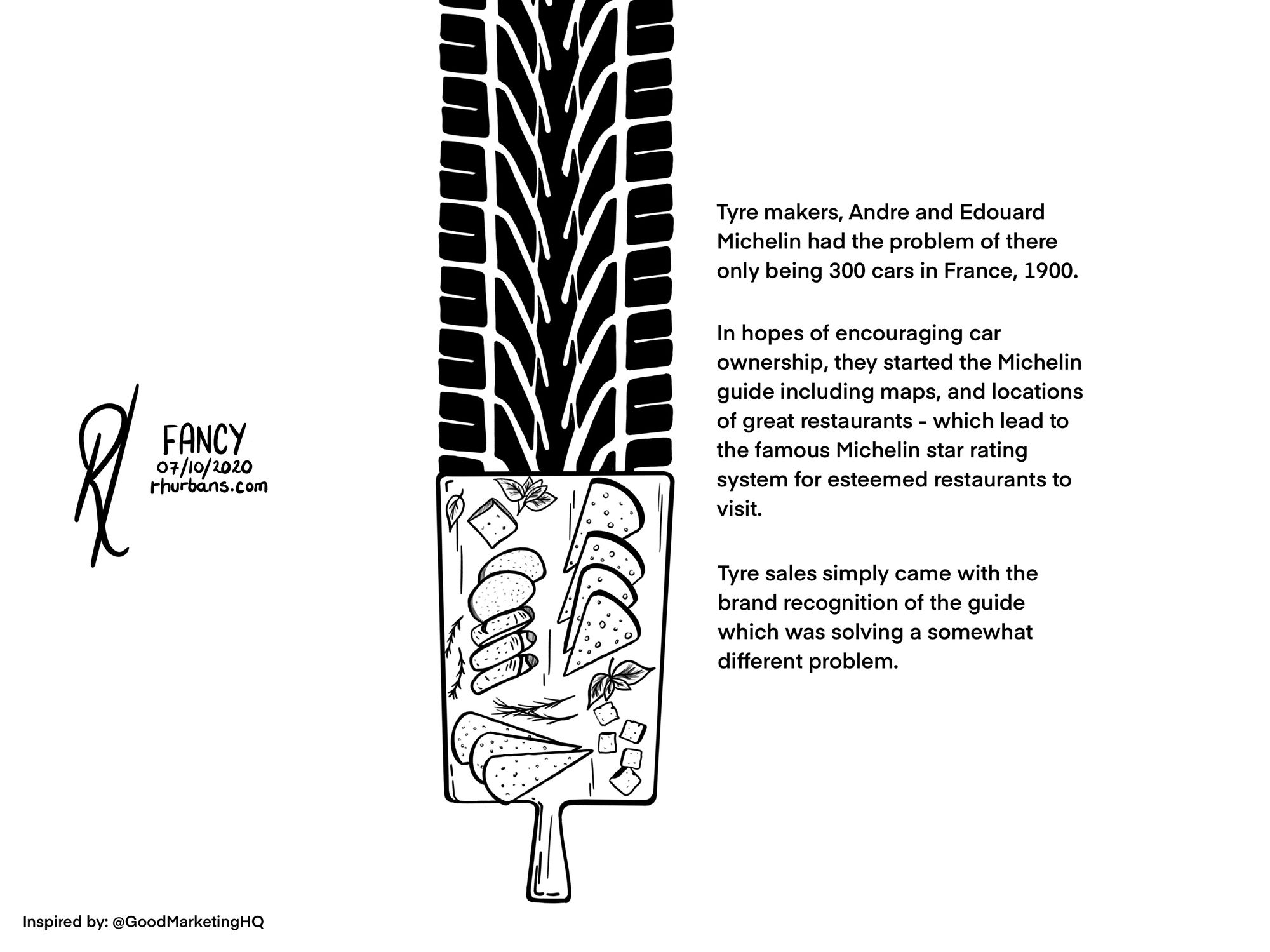
Day 8: Teeth - The longevity and lack thereof of human teeth
Tooth enamel is inherently weak. It has the fracture toughness comparable with glass, but it's resilient, and survives millions of contacts over a lifetime. Even after death, your teeth will persevere for thousands of years.
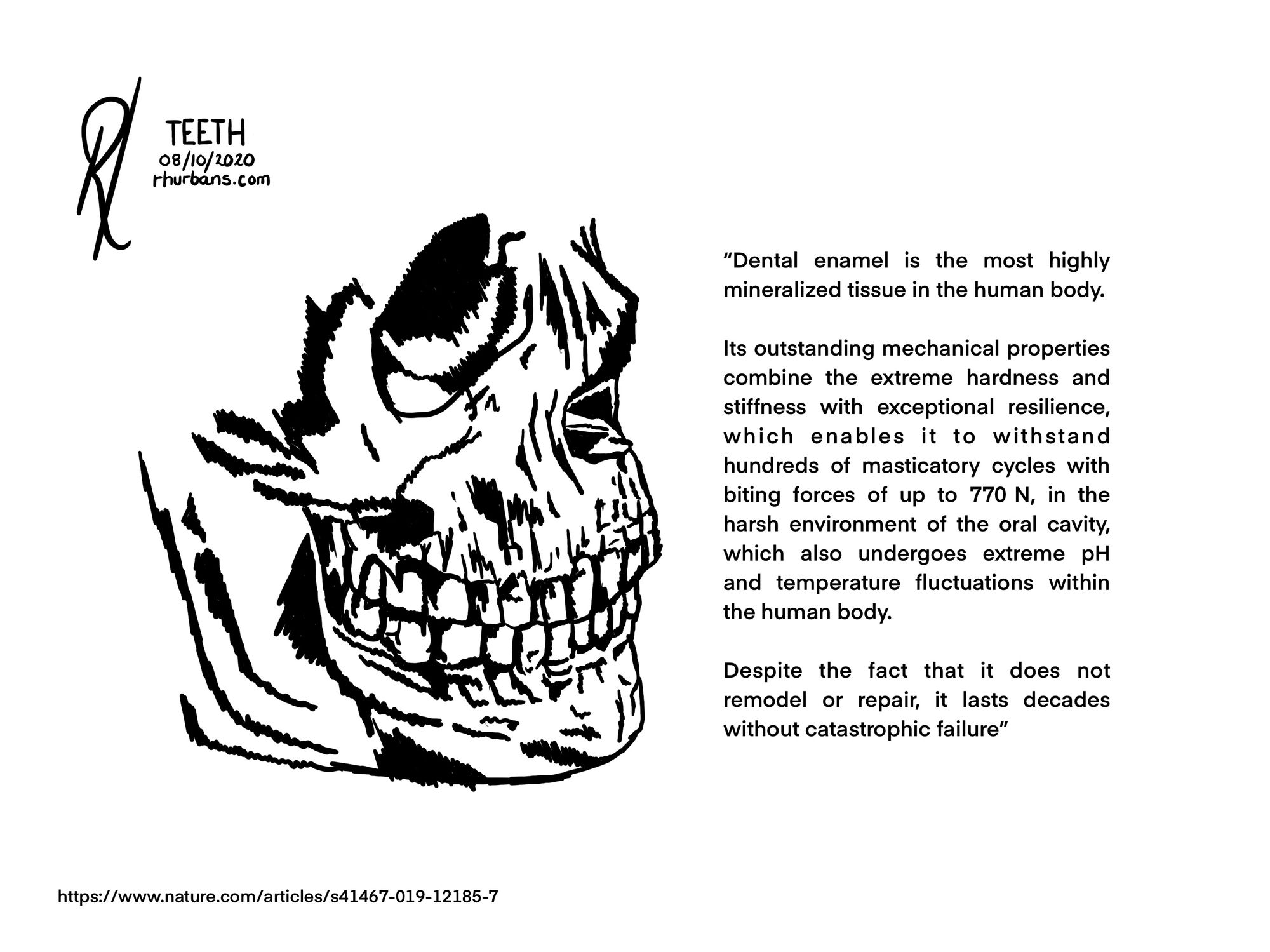
Day 9: Throw - The value of English football clubs over time
Ever wondered how wealthy football clubs are? Total revenue for English football clubs has more than doubled in the last decade. The richest three clubs have a combined revenue of over 2 billion euros, with Manchester United topping the chart.
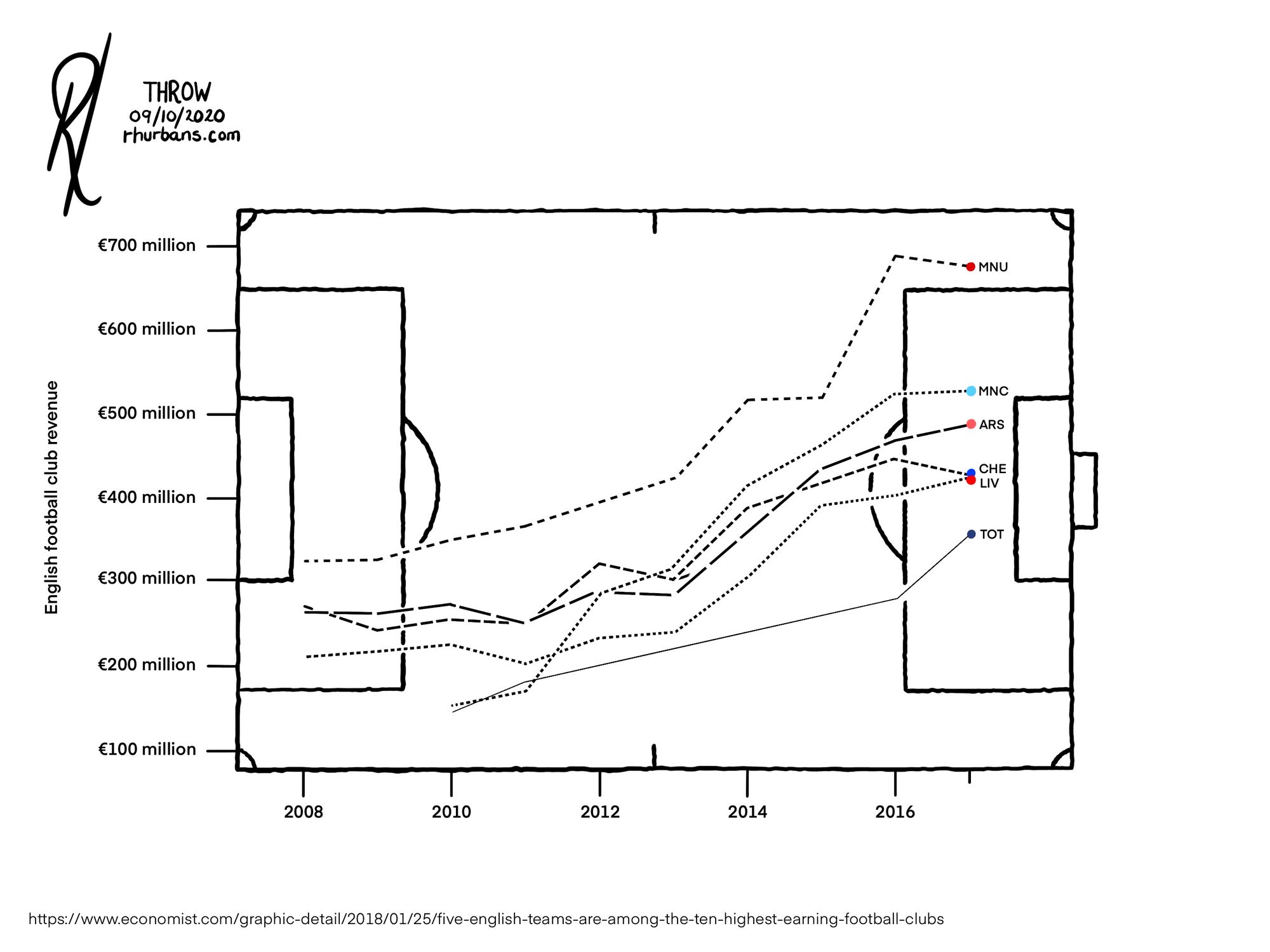
Day 10: Hope - Humanity's interstellar future
Keeping up with the Kardashev Scale. The scale is a measure of a civilisation's technological advancement based on the amount of energy that they're able to control. We're currently a type ±0.73 civilisation.
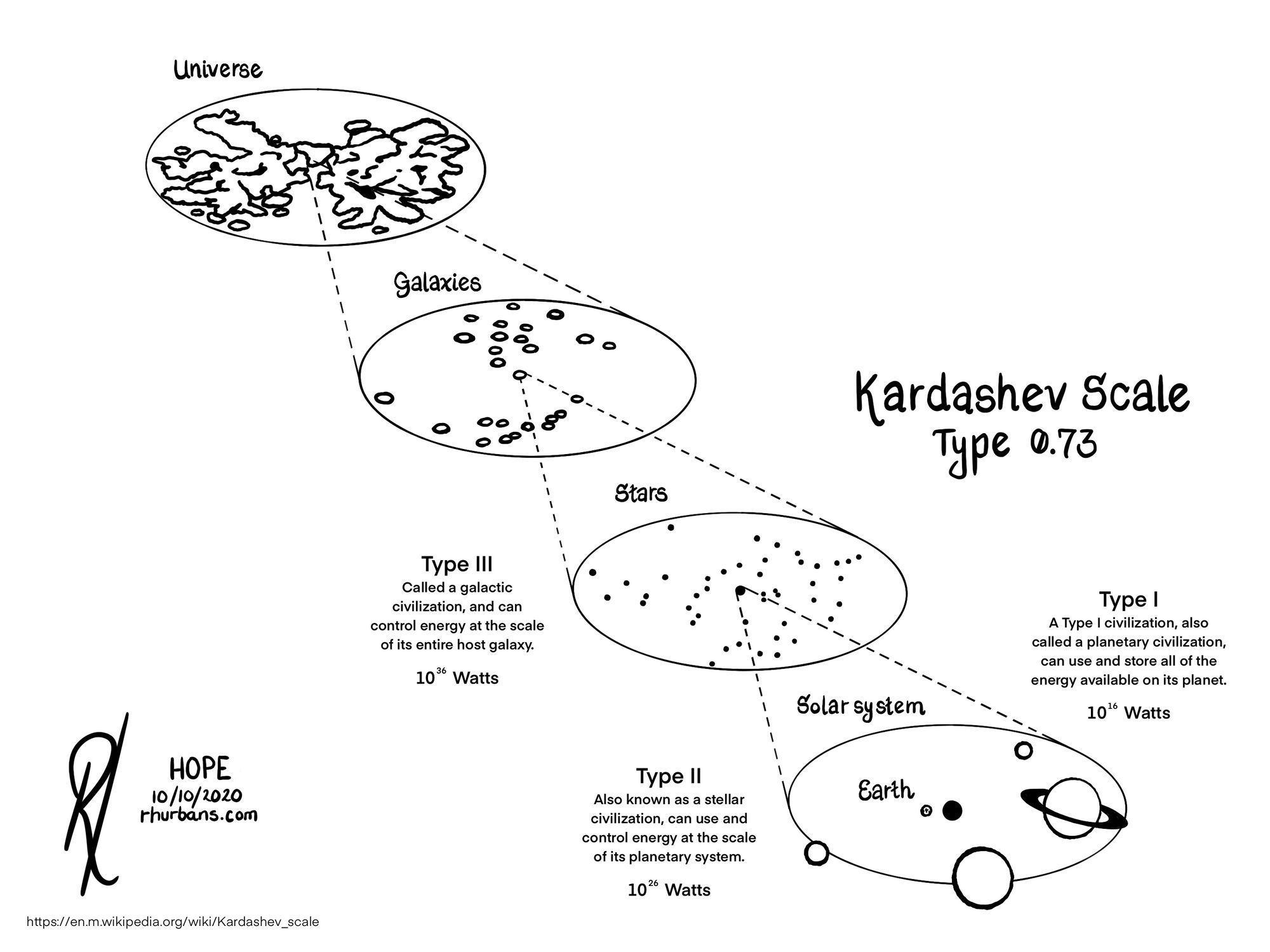
Day 11: Disgusting - The dire state of food wastage
We're living in a time where one third of all food is wasted, while ±820 million people (roughly 10% of the population) don't have enough food to live a healthy life.
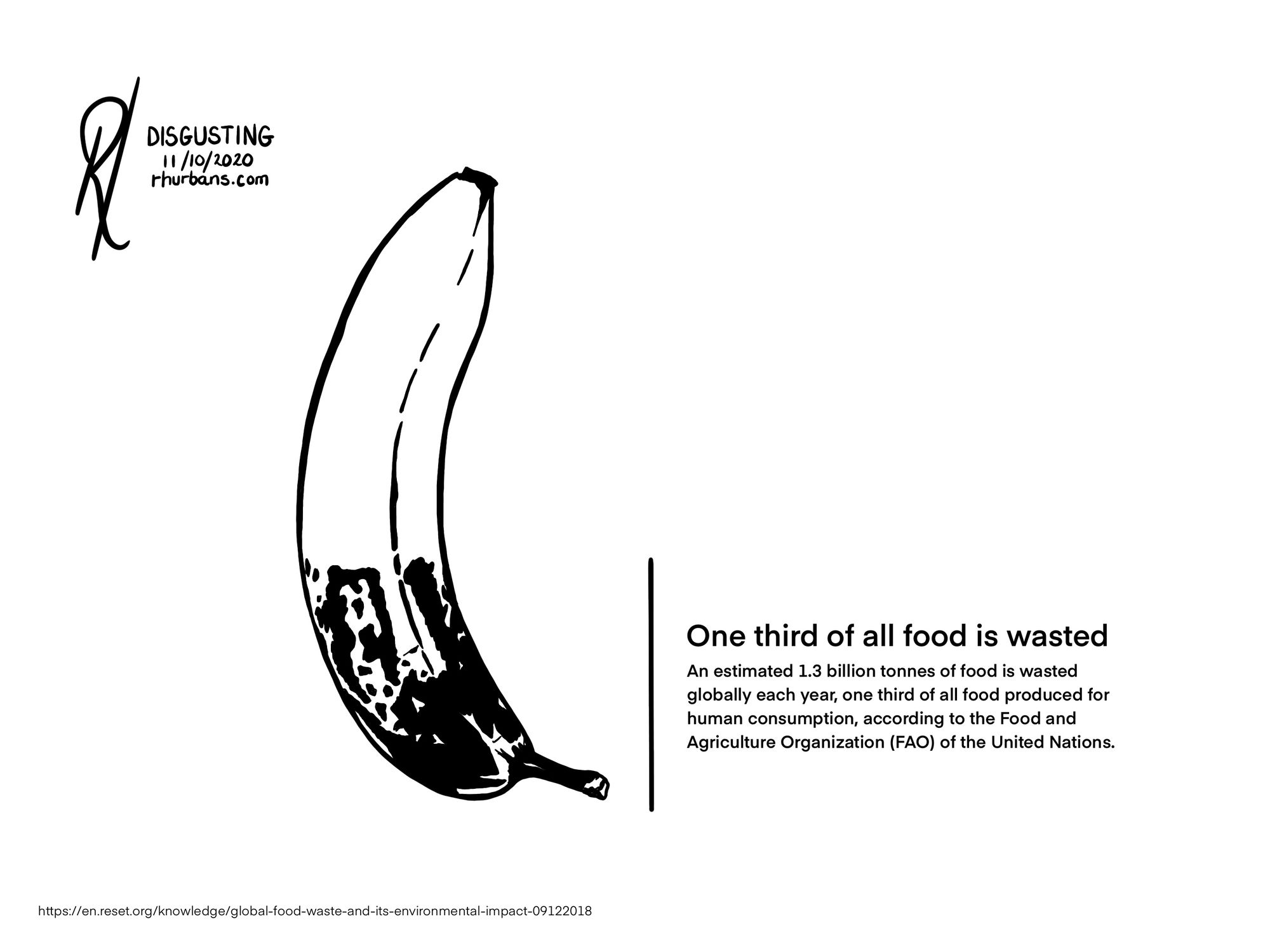
Day 12: Slippery - The amount of freshwater we use
Our freshwater usage has increased by almost 6x since 1900. Agriculture accounts for about 70% of our total withdrawals; with beef, nuts, and sheep/goat farming requiring the most use of freshwater. Although water seems abundant, useful water is scarce.
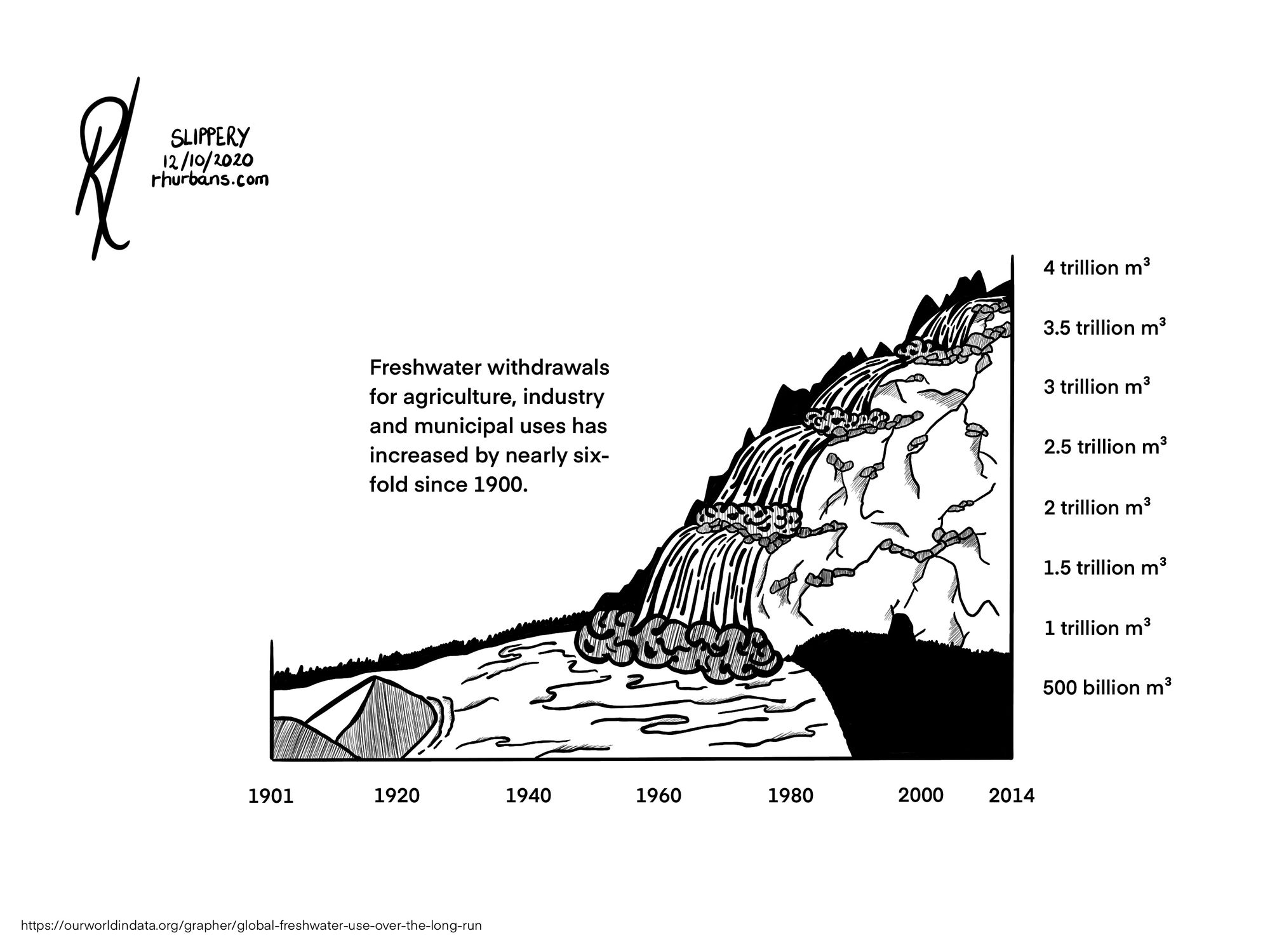
Day 13: Dune - The composition of sand, and our need for it
Sand is the second-most consumed natural resource. We use 50 billion tonnes every year - that's more than enough to cover the entire United Kingdom. This demand is driven by a growing population and urbanisation. Although we have many deserts, that sand is useless.
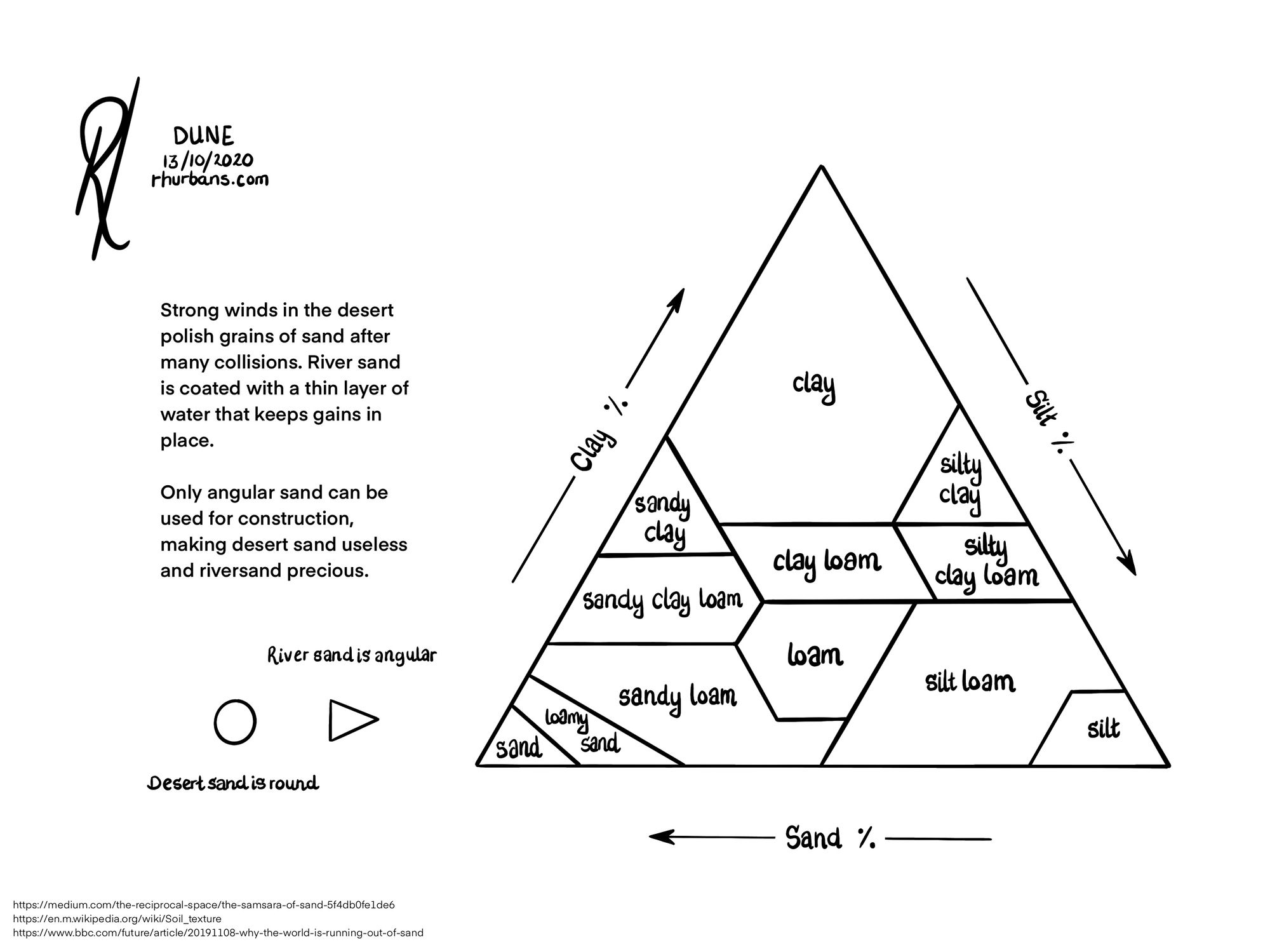
Day 14: Armour - The world's military spend
The world collectively spent 1.917 trillion dollars on military in 2019 - the highest since 1988. Our strange world in perspective: a study proposed that we could end world hunger by 2030 with 330 billion dollars a year - about 18% of our annual military spend.
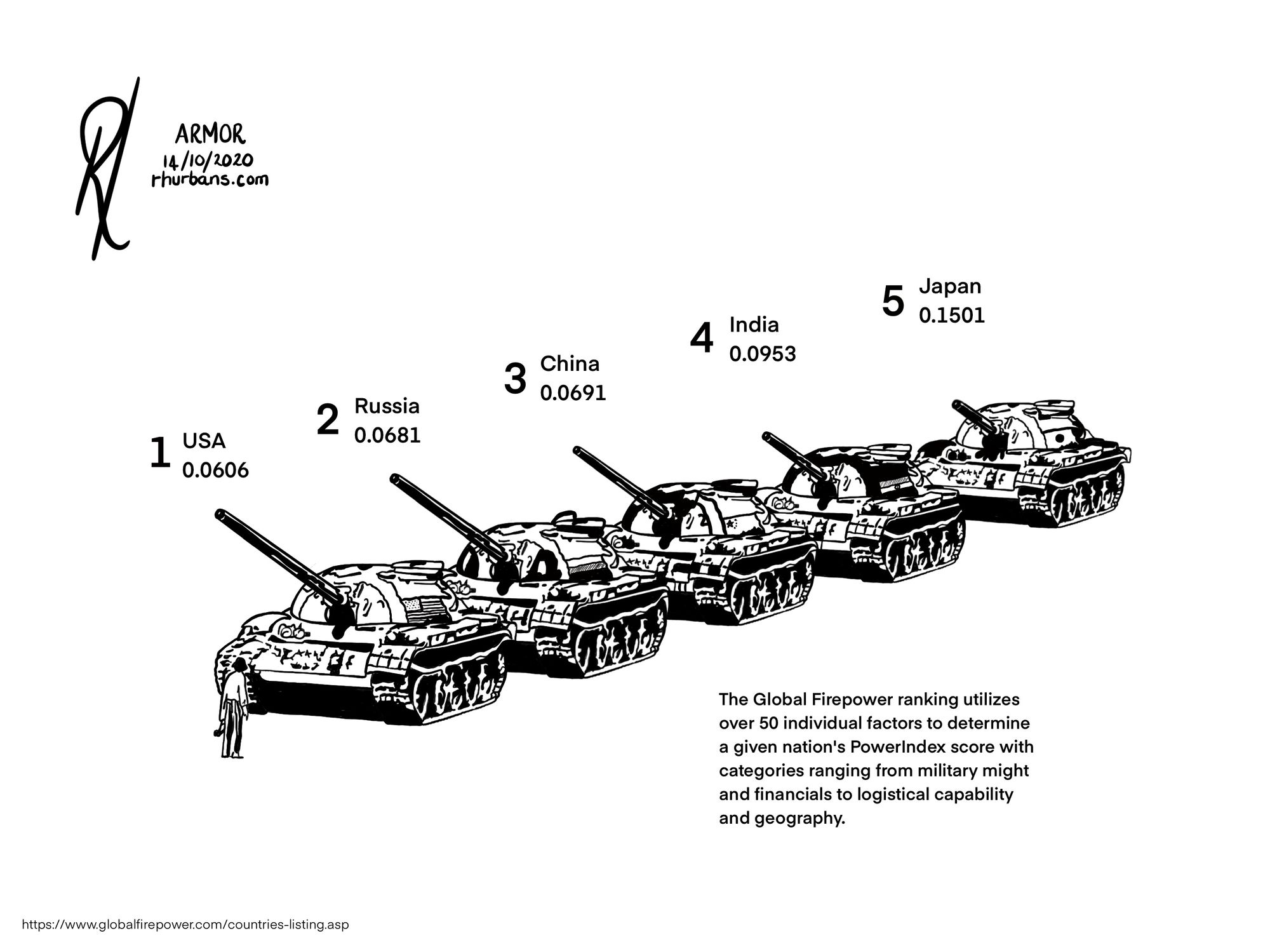
Day 15: Outpost - Our quest to populate Mars
A Mars outpost would be a great achievement for us. But right now, it's the only planet solely inhabited by robots. NASA has sent four robotic vehicles to Mars - Sojourner, Spirit, Opportunity, and Curiosity.
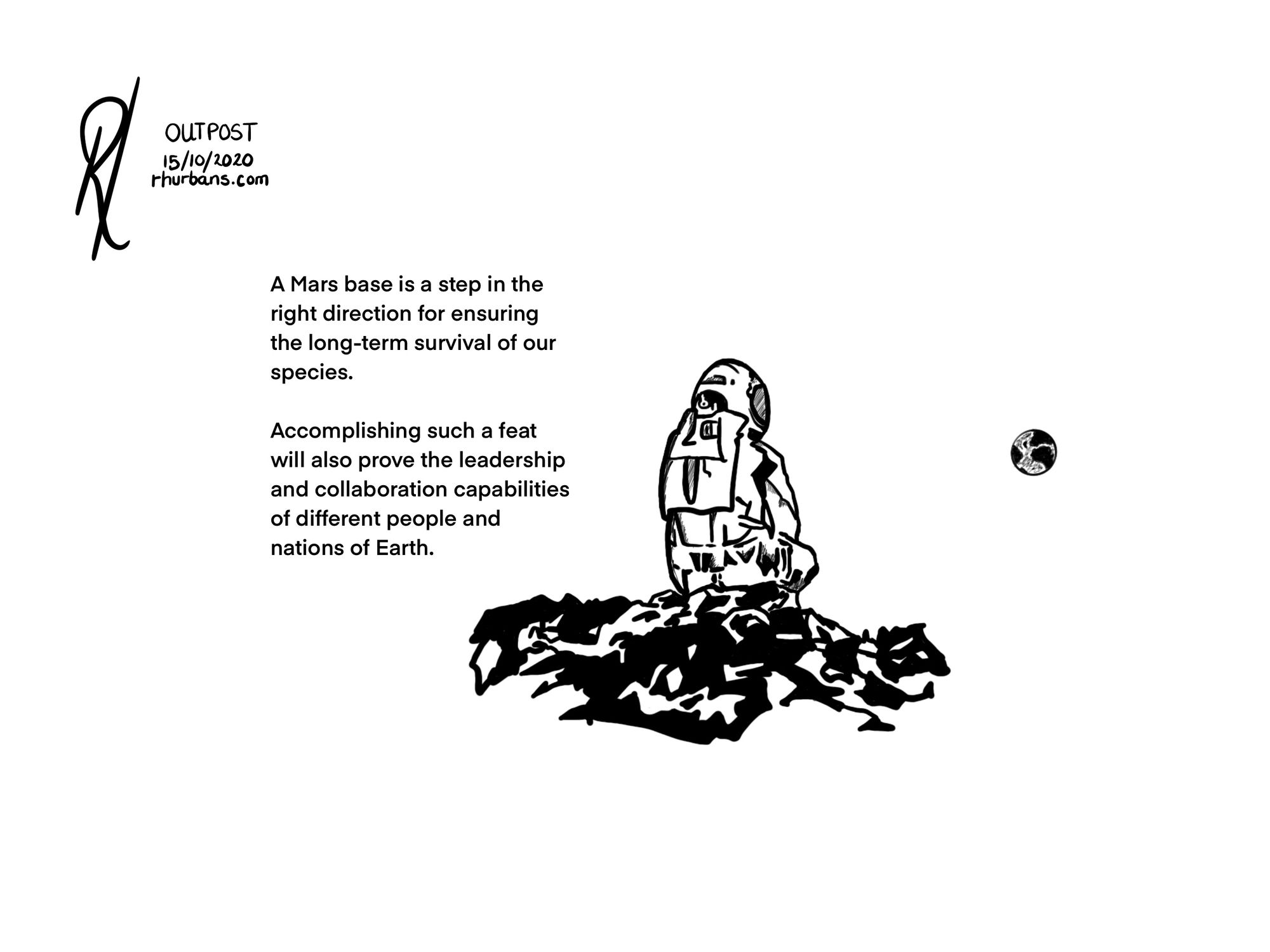
Day 16: Rocket - The promising new rockets from SpaceX
SpaceX designed the Falcon rockets with commonality in mind. Both of Falcon 9’s stages are powered by RP1 and liquid oxygen - only one type of engine is required. Both are the same diameter and are constructed from the same aluminium-lithium alloy, reducing costs.
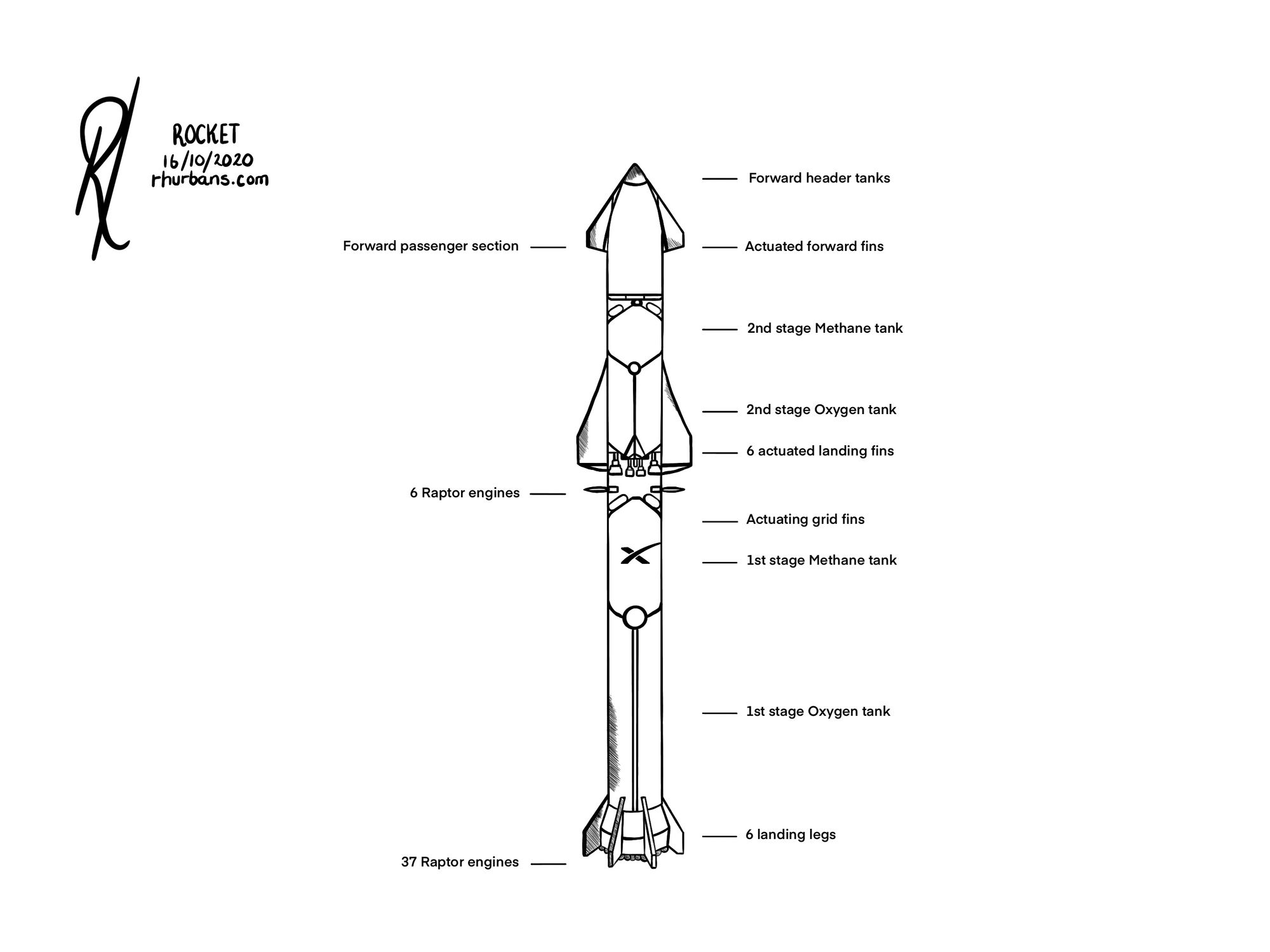
Day 17: Storm - Climate change and its impact on storms
Warm ocean water fuels hurricanes, and warmer air holds more moisture - causing more rain. Given this, it's probable that storms will be more intense on a hotter planet due to global warming.
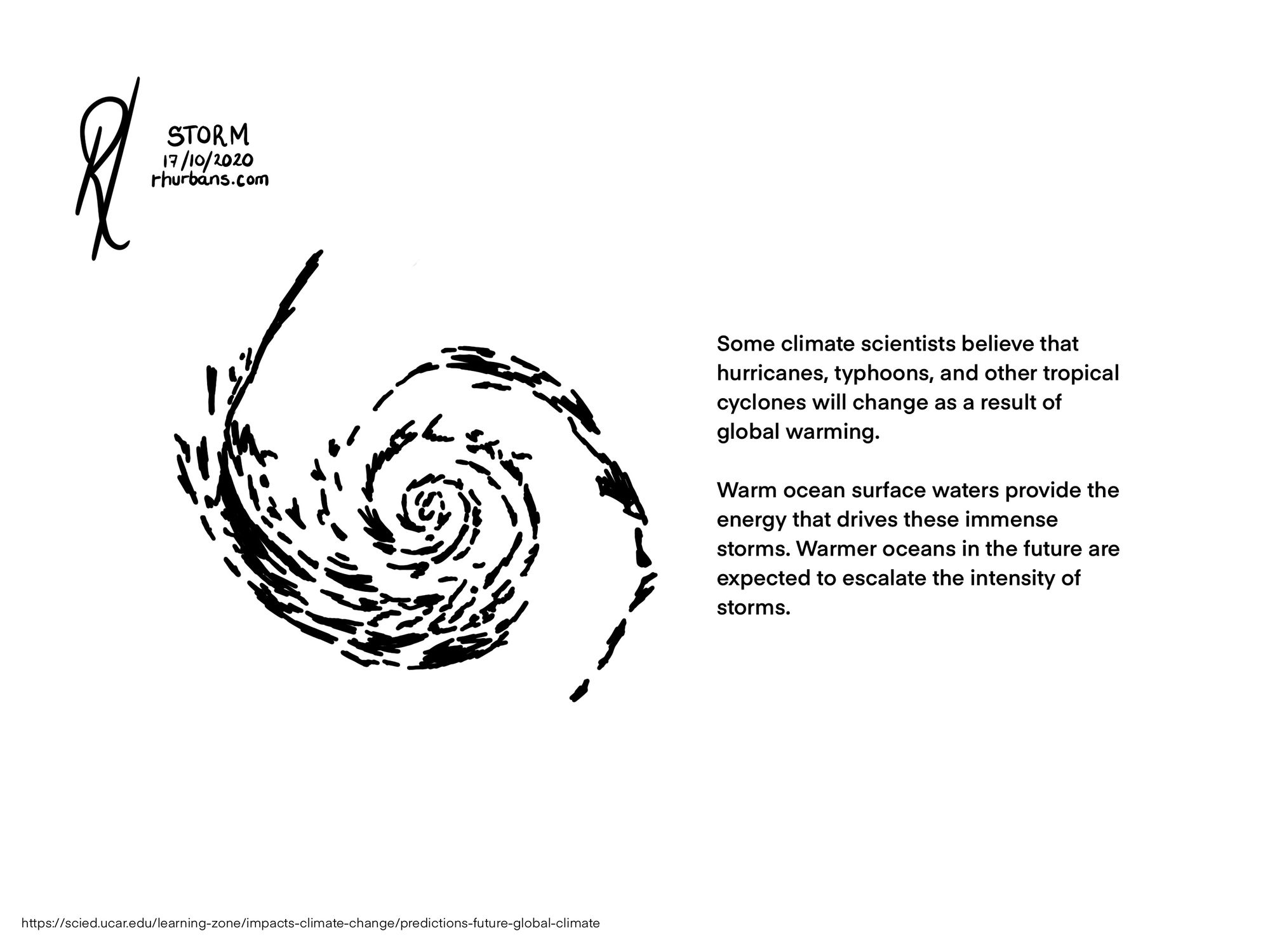
Day 18: Trap - A clever chord progression ear trap
Are hit songs stokes of genius or clever traps for our ears and brains? The I–V–vi–IV chord progression (e.g. C–G–Am–F) is used in over 300 chart topping songs, including everything from "Hello" by Adele, to "No Woman, No Cry" by Bob Marley.
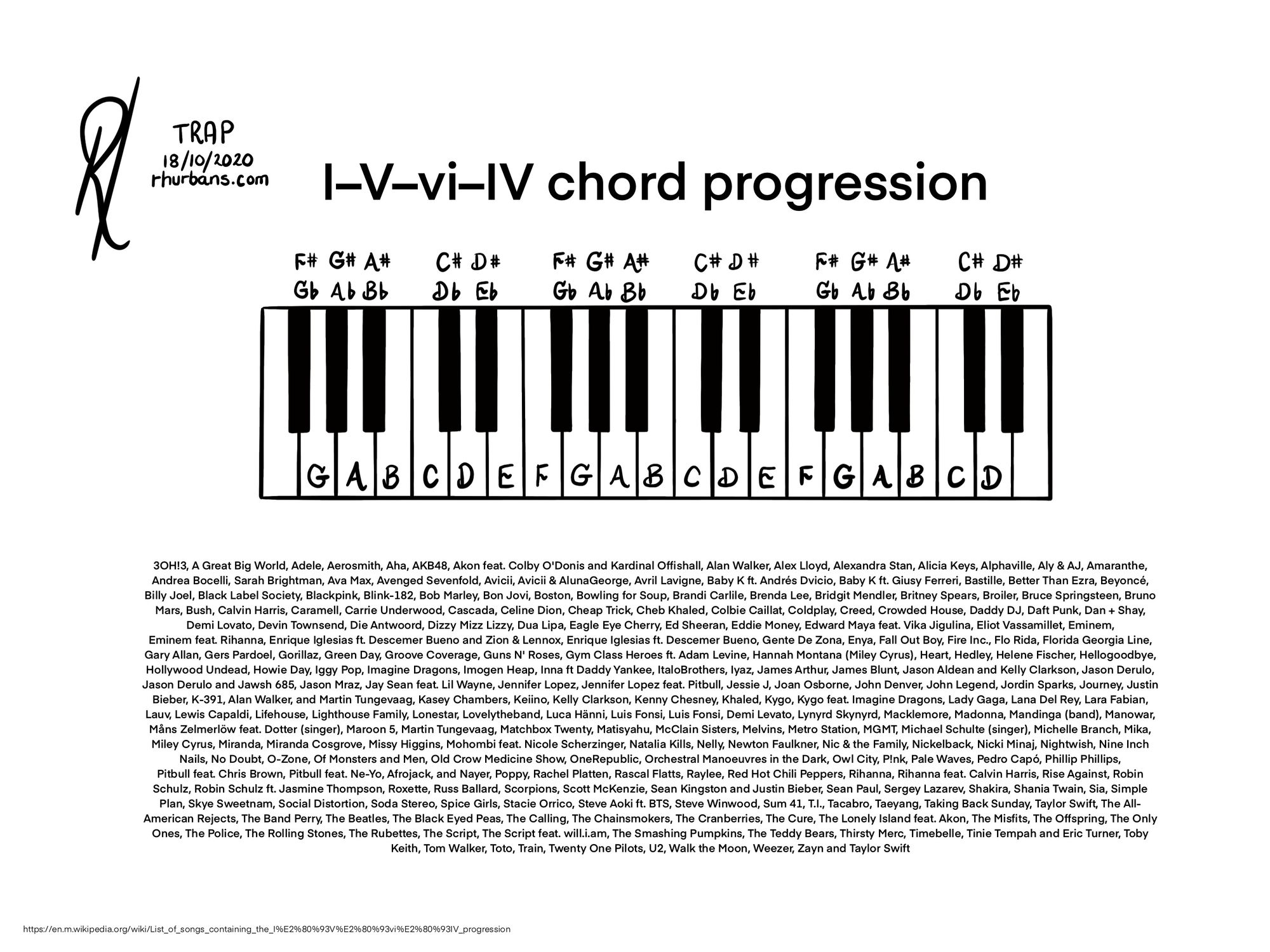
Day 19: Dizzy - Neurons in the human brain
When you grab a cup and take a sip of water, millions of neurons process the intention of what you want to do, the physical action to accomplish it, and the feedback to determine whether you were successful. This inspires many AI algorithms - as seen in Grokking Artificial Intelligence Algorithms.
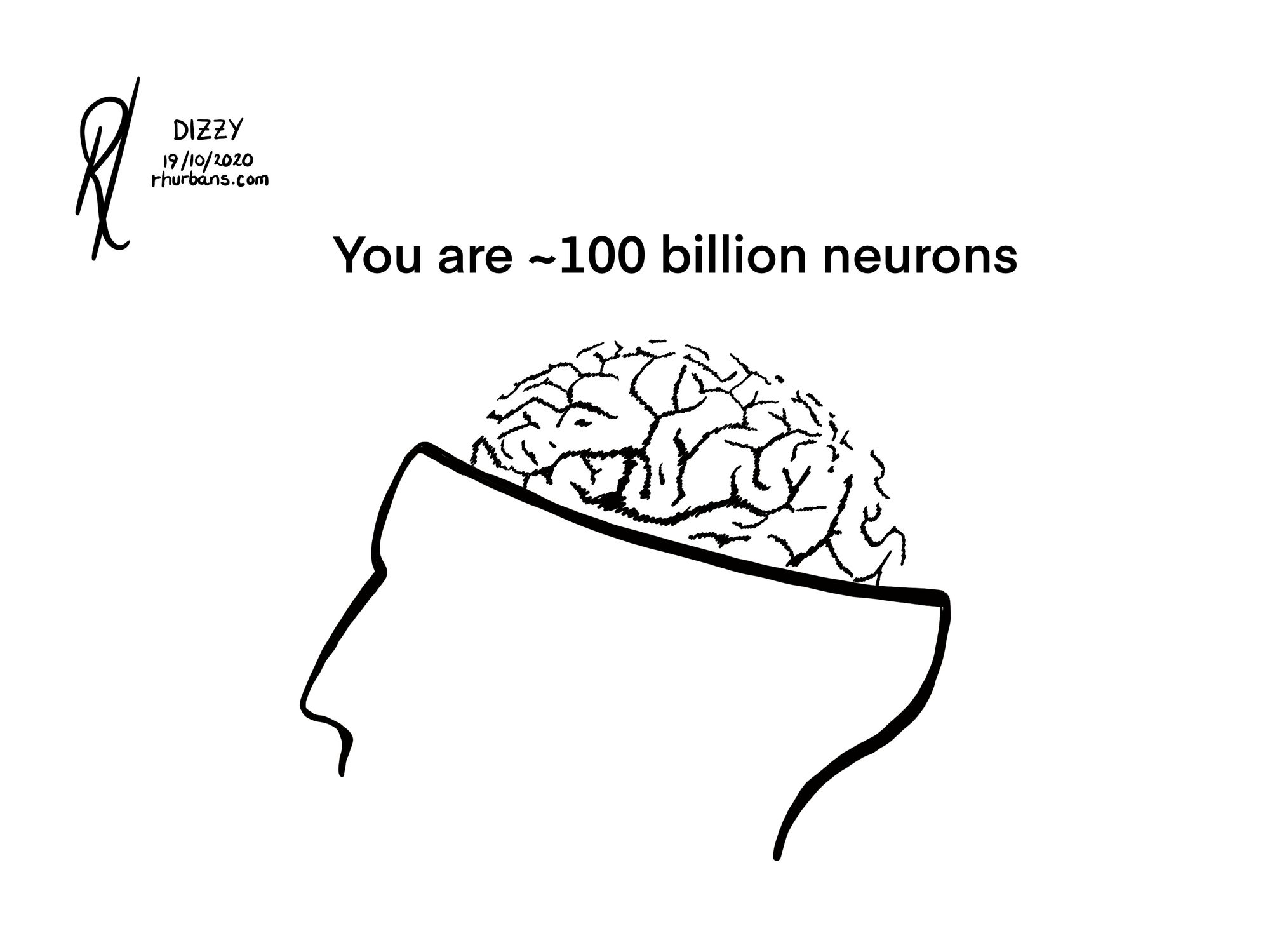
Day 20: Coral - The impact of climate change on coral reefs
Australia's Great Barrier Reef has lost more than half of its coral in just 20 years - believed to be cause by warmer oceans due to climate change. Despite covering less than 0.1% of the ocean floor, coral reefs host more than 25% of all marine fish species.
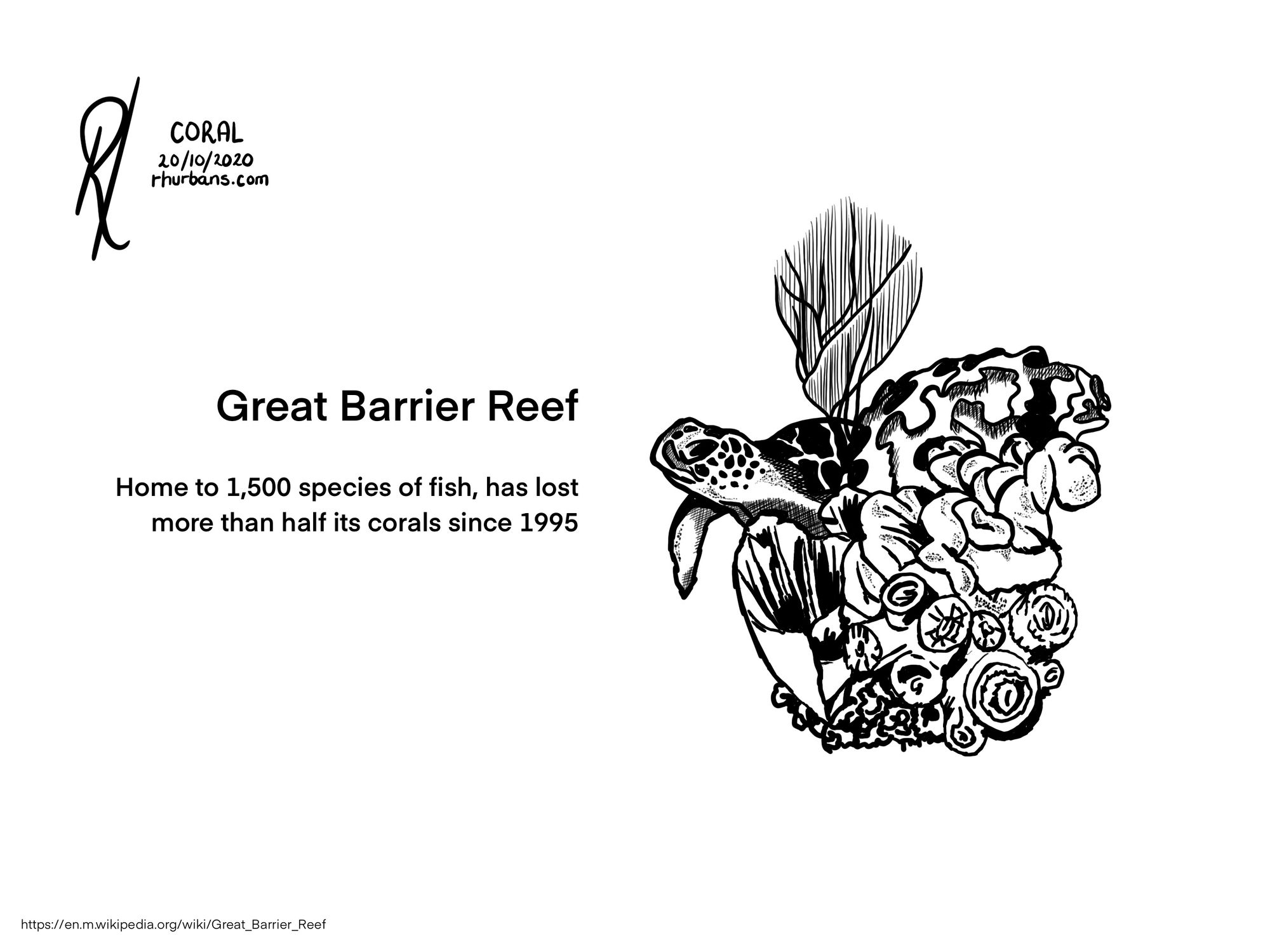
Day 21: Sleep - Our experiences with different types of sleep
Different sleep has different jobs. Poor quality of sleep impacts the brain, central nervous system, respiratory system, cardiovascular system, digestive system, immune system, and endocrine system (hormones). I struggle with sleep myself, but this is...eye opening.
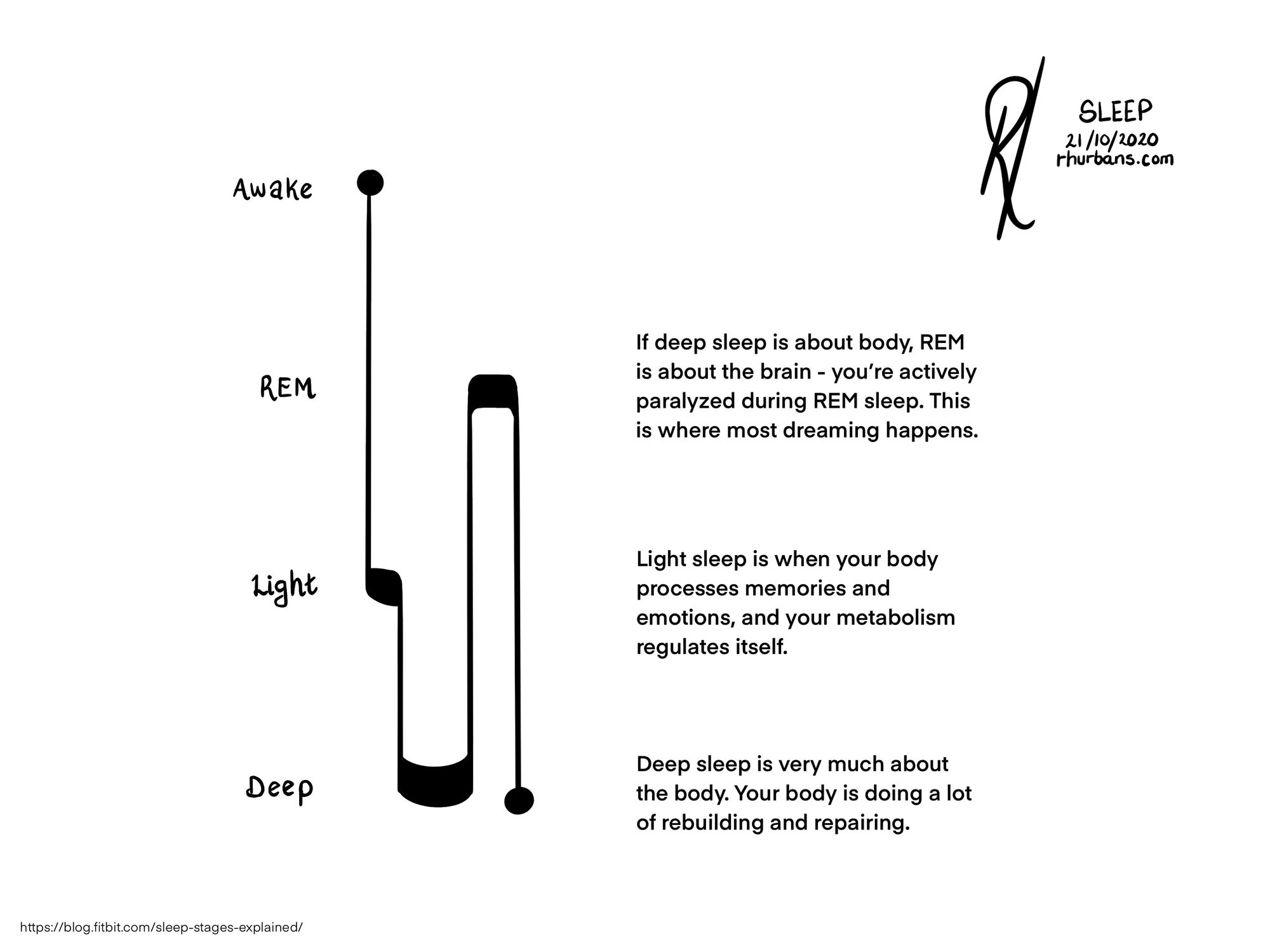
Day 22: Chef - Chilli plants and their chemical composition
As I grow older, I like spicy food more, why? Capsaicin is a known pain reliever. Because capsaicin causes the body to interpret a pain response, it also causes it to release endorphins in order to block pain receptors - the good feels.
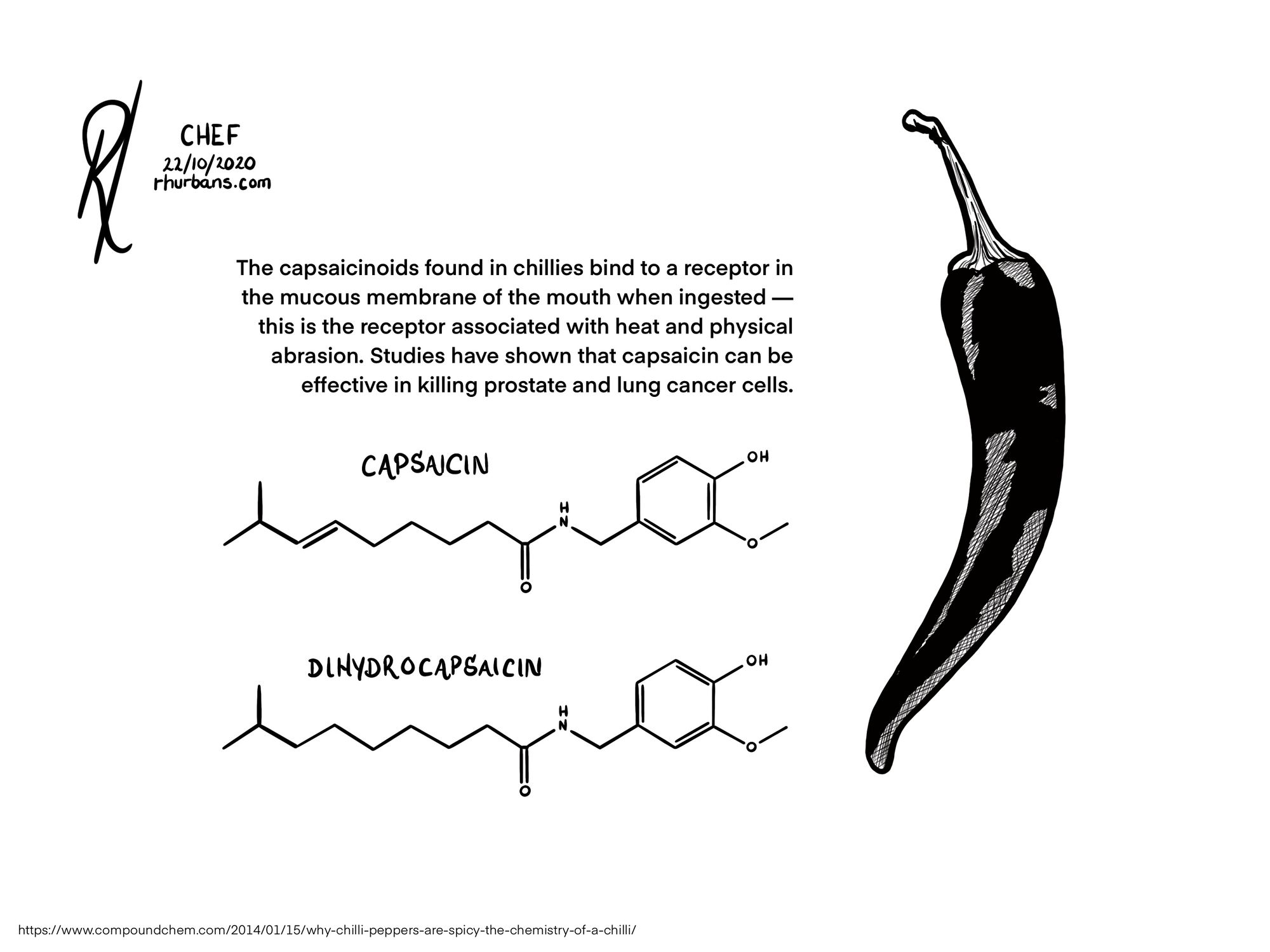
Day 23: RIP - Causes of human deaths
In 2019, 140 million people were born, and 58 million people died. The annual number of deaths is expected to continue to increase in the coming decades until it reaches a similar annual number as global births towards the end of the century.
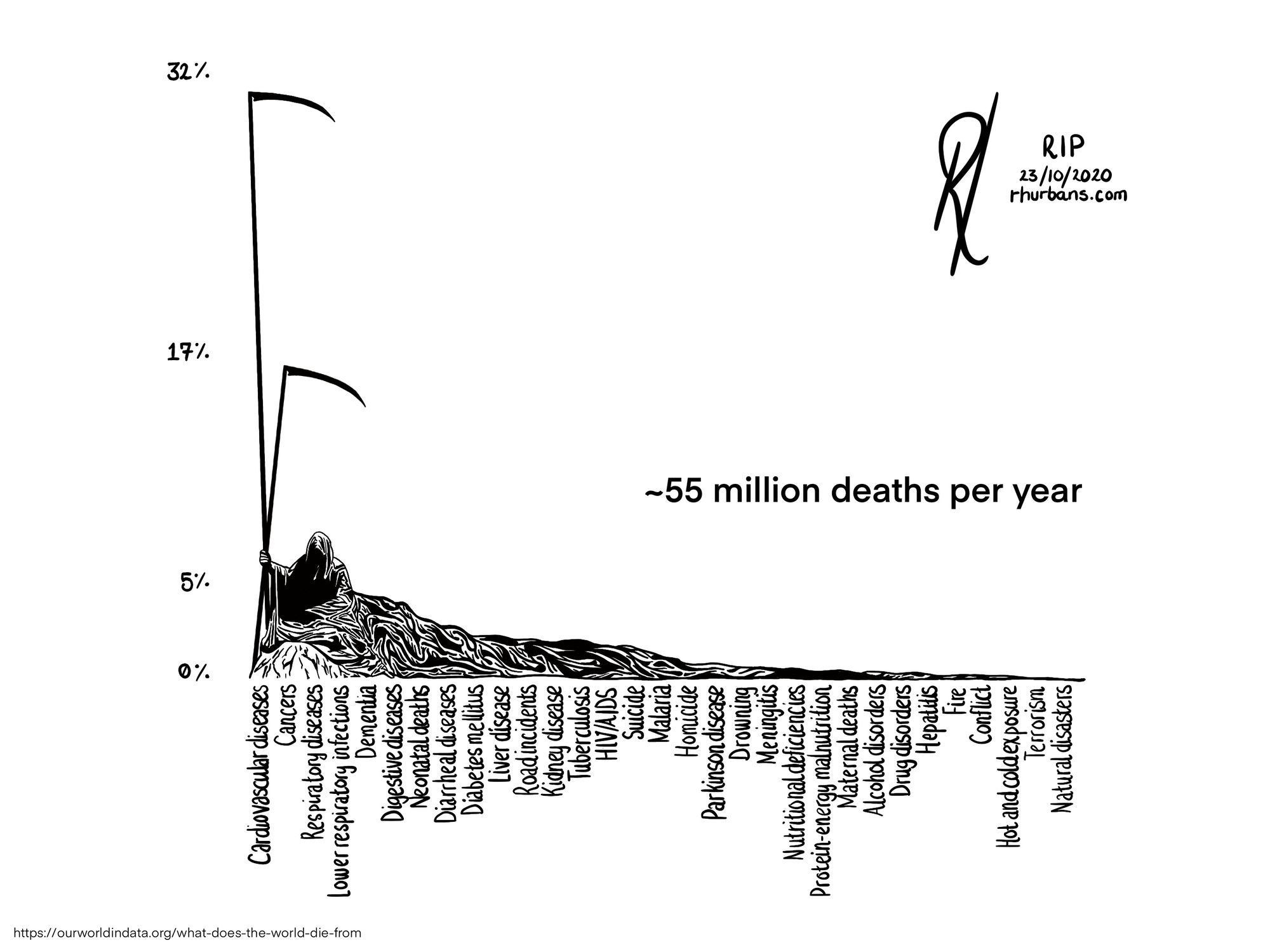
Day 24: Dig - Volcanos and misleading data
By looking at the history of volcanic activity, we may assume that it's increasing exponentially and we're doomed. However, data is dependent on people reporting it. The sharp increase in volcanic activity reports coincides with the growth of the population.
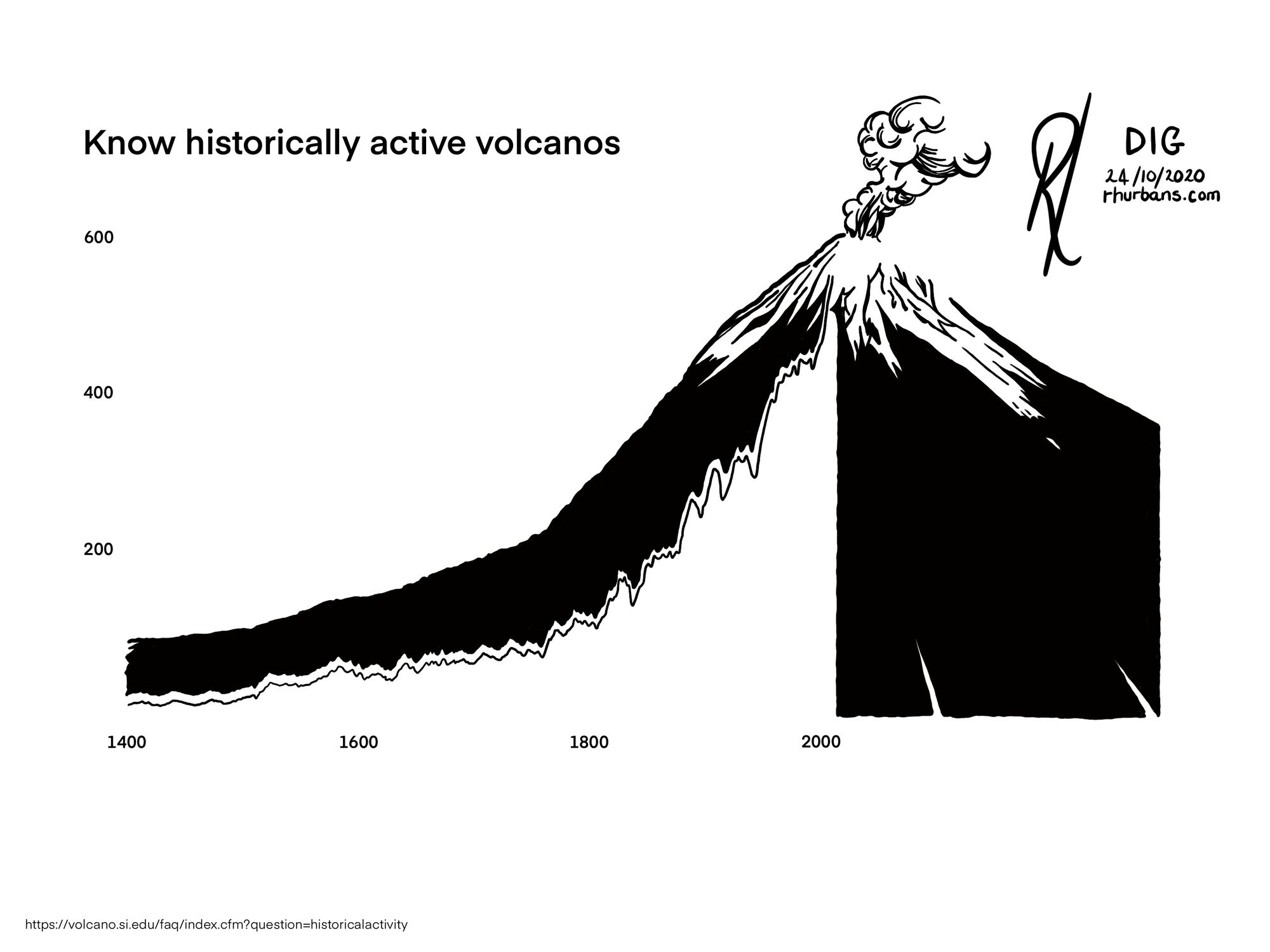
Day 25: Buddy - The history of cooperation between humans
Many uniquely human traits like high cognition, cumulative culture and hyper-cooperation have evolved from the social organisation patterns from our past. Interacting with the world and each other has made us the highly intelligent* beings we are today.
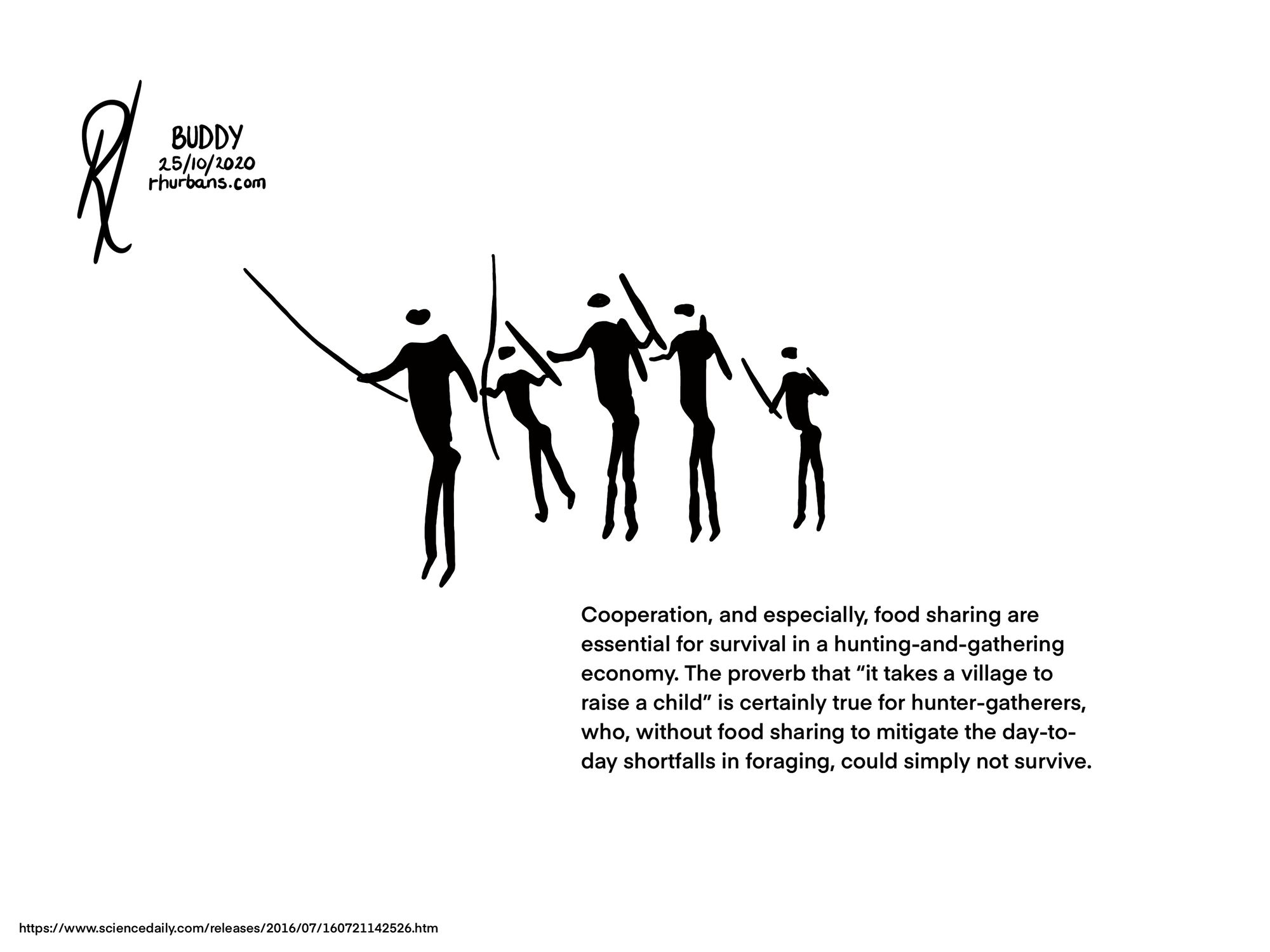
Day 26: Hide - The importance of prime numbers in encryption algorithms
Factoring large numbers might seem like a fun and interesting puzzle. However, this, along with other math tasks constitutes the foundation of most encryption approaches. Breaking encryption means finding private keys - as computing evolves, it's a real possibility.
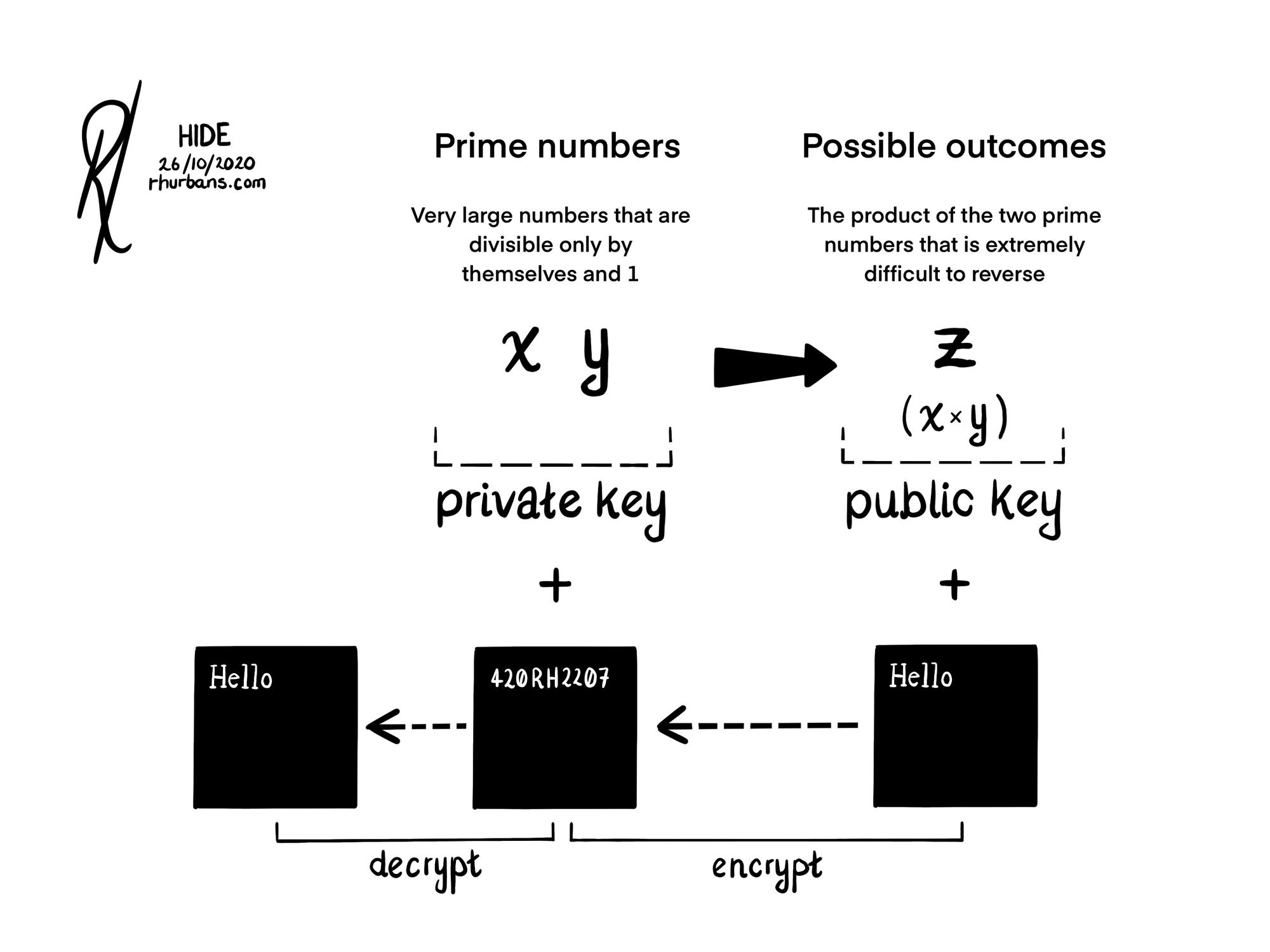
Day 27: Music - The history of music media and how it's changed
Revenue from music sales has been at its lowest in 40 years, but it's finally increasing. Napster, the music file sharing site, was introduced in 1999, and coincides with the rapid decline in revenue since.
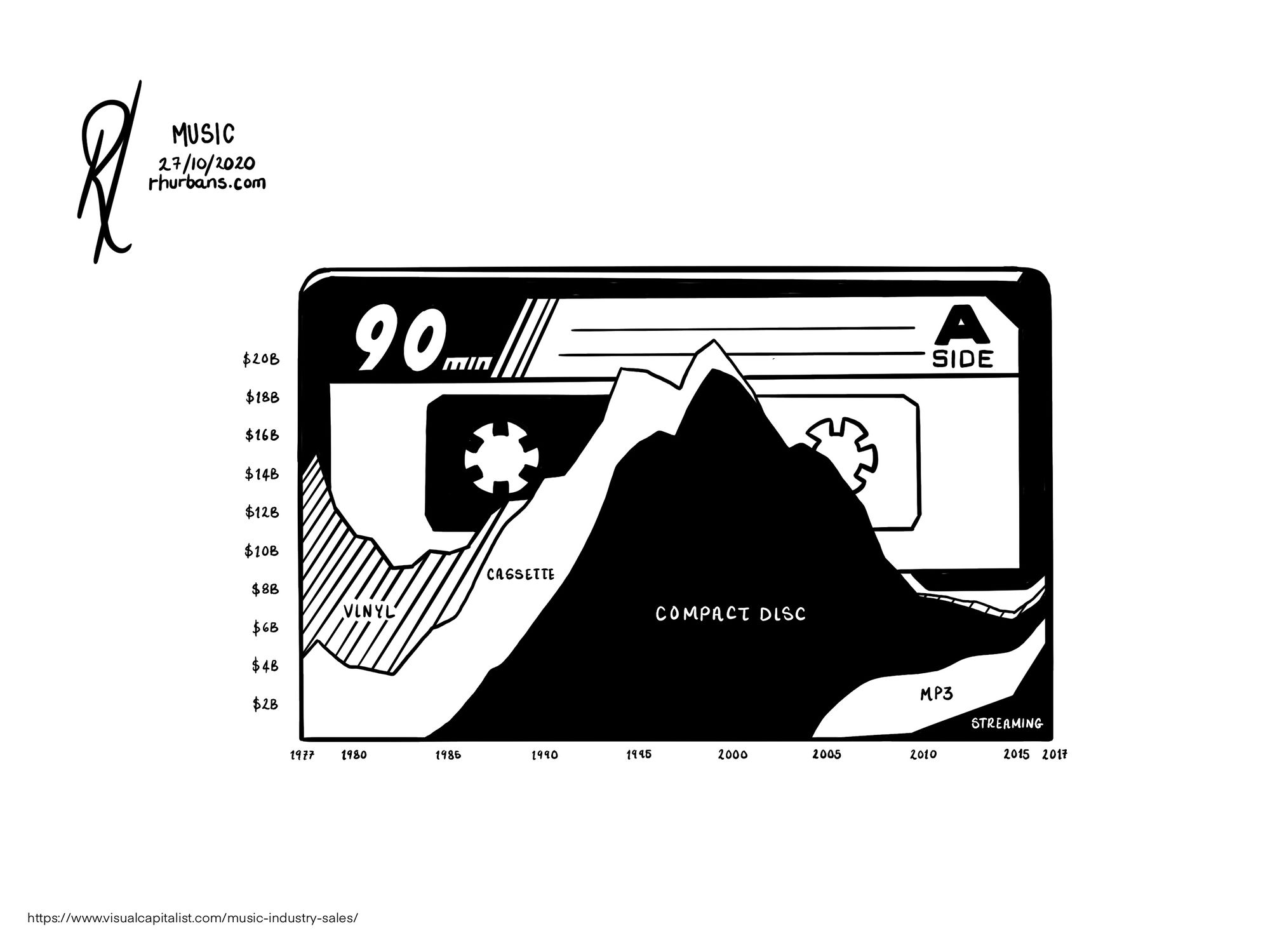
Day 28: Float - Trade routes and container shipping
The first major trade routes were formed between modern-day India and Pakistan along the Arabian Sea - around 5000 years ago. Due to bandit attacks, land travel became dangerous. The container shipping industry is now valued at ±$12 trillion.
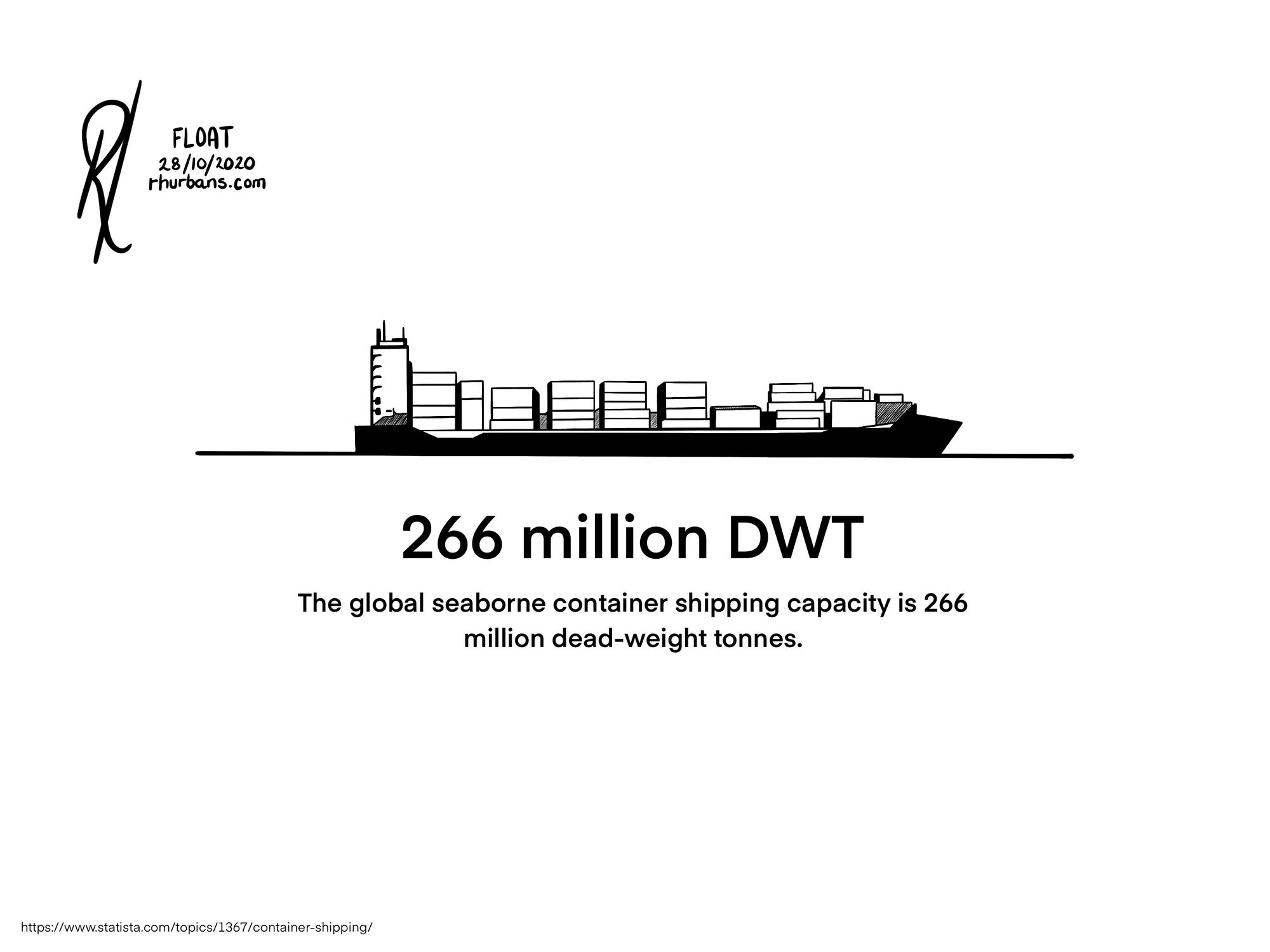
Day 29: Shoes - The origin of shoes and today's market value
After ±5500 years, Nike is the most valuable apparel brand worldwide, with a brand value of over $32 billion. It's interesting to think about what technology and ideas are only in its infancy now.
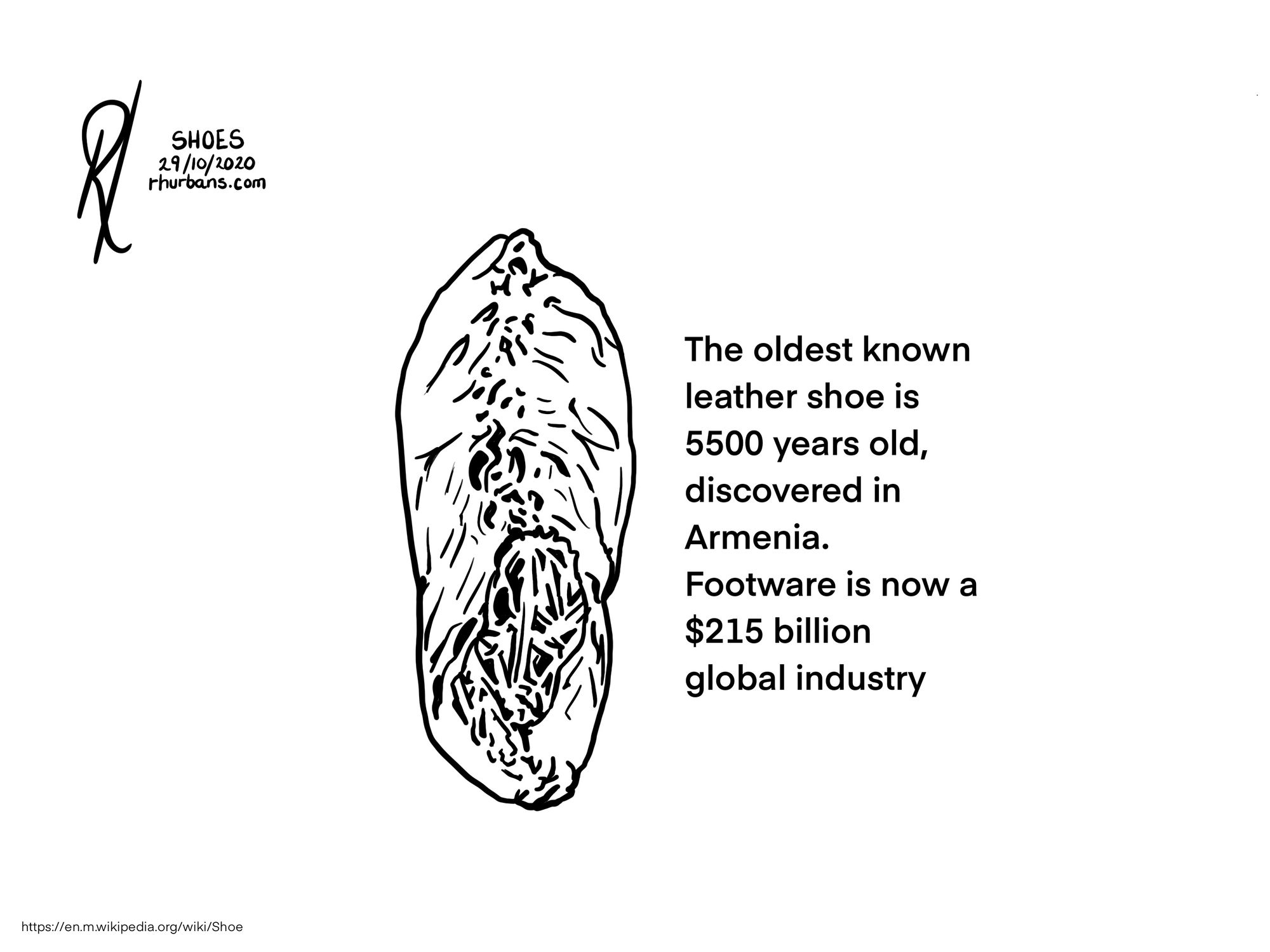
Day 30: Ominous - Our inevitable death by our Sun
Nothing is permanent.
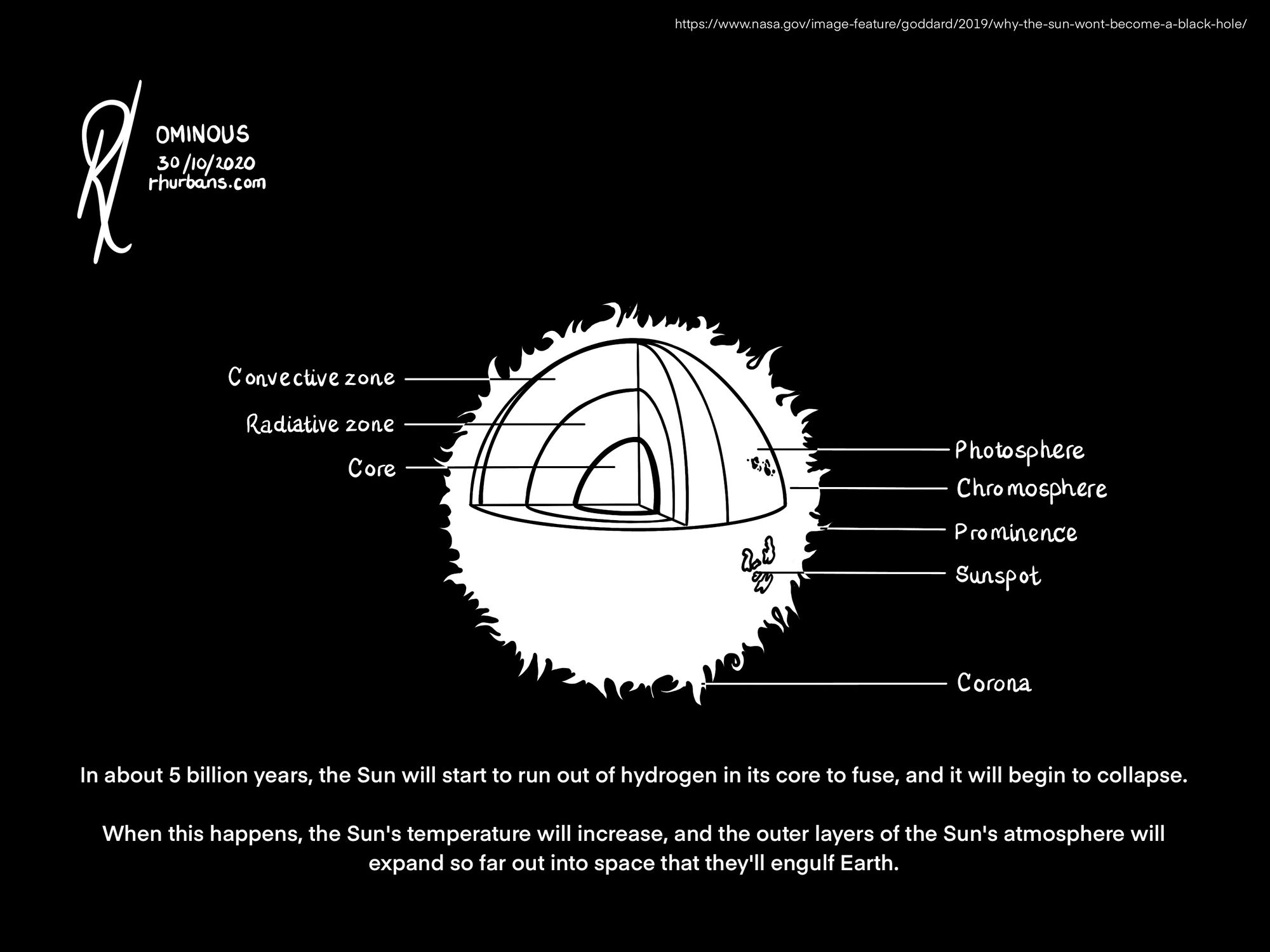
Day 31: Crawl - The importance of bees in human survival
Pollination involves transferring pollen from the male part of a plant to the female part of a plant for fertilisation and production of seeds. Like most living things, plants need to create offspring. Robotic bees are being considered for the case of bee extinction.
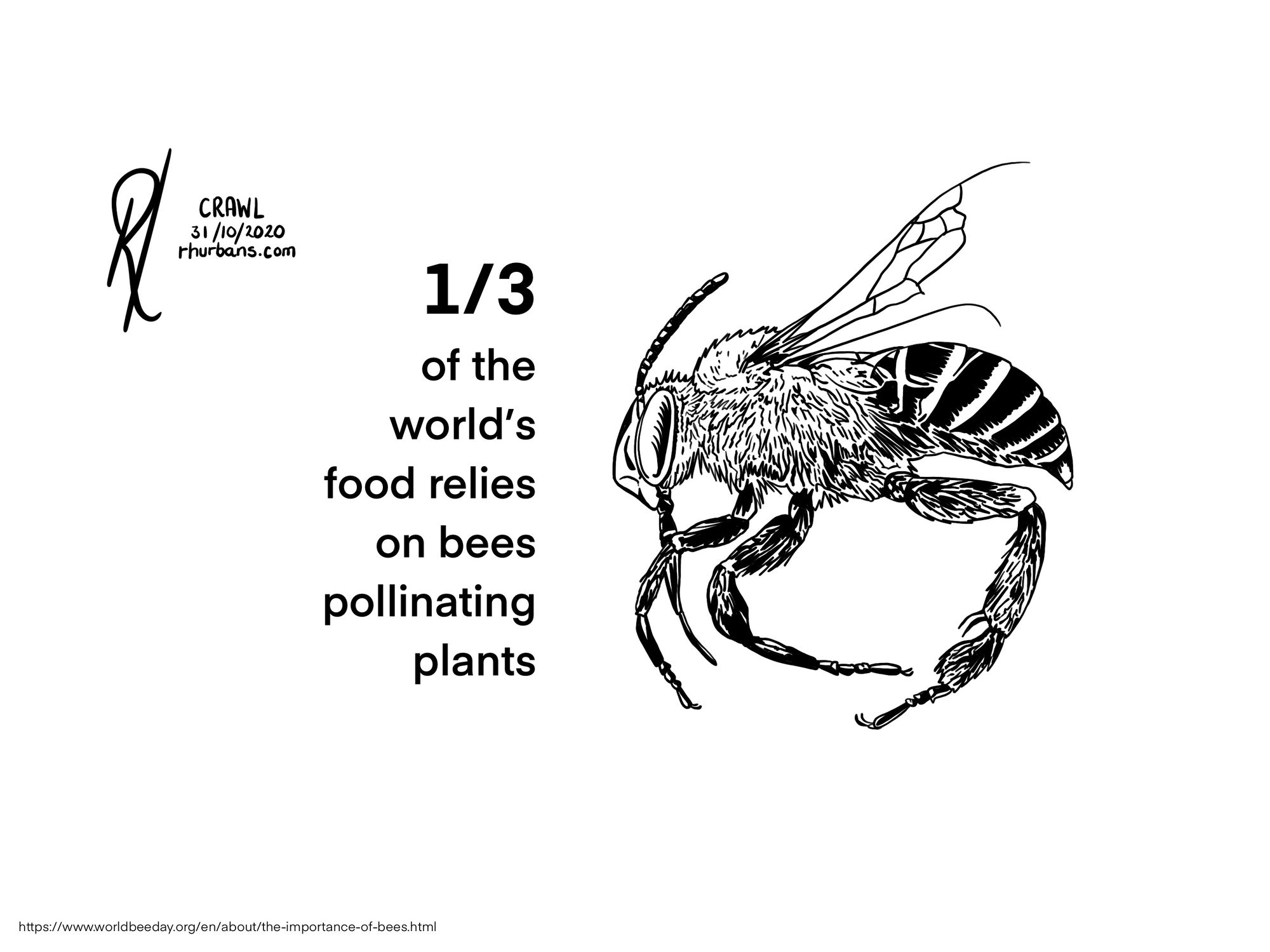
Follow me on LinkedIn, Twitter, and check out my book, Grokking Artificial Intelligence Algorithms if you want to learn about AI with visual explanations and practical walkthroughs.
Processing your application
There was an error sending the email, please try again
